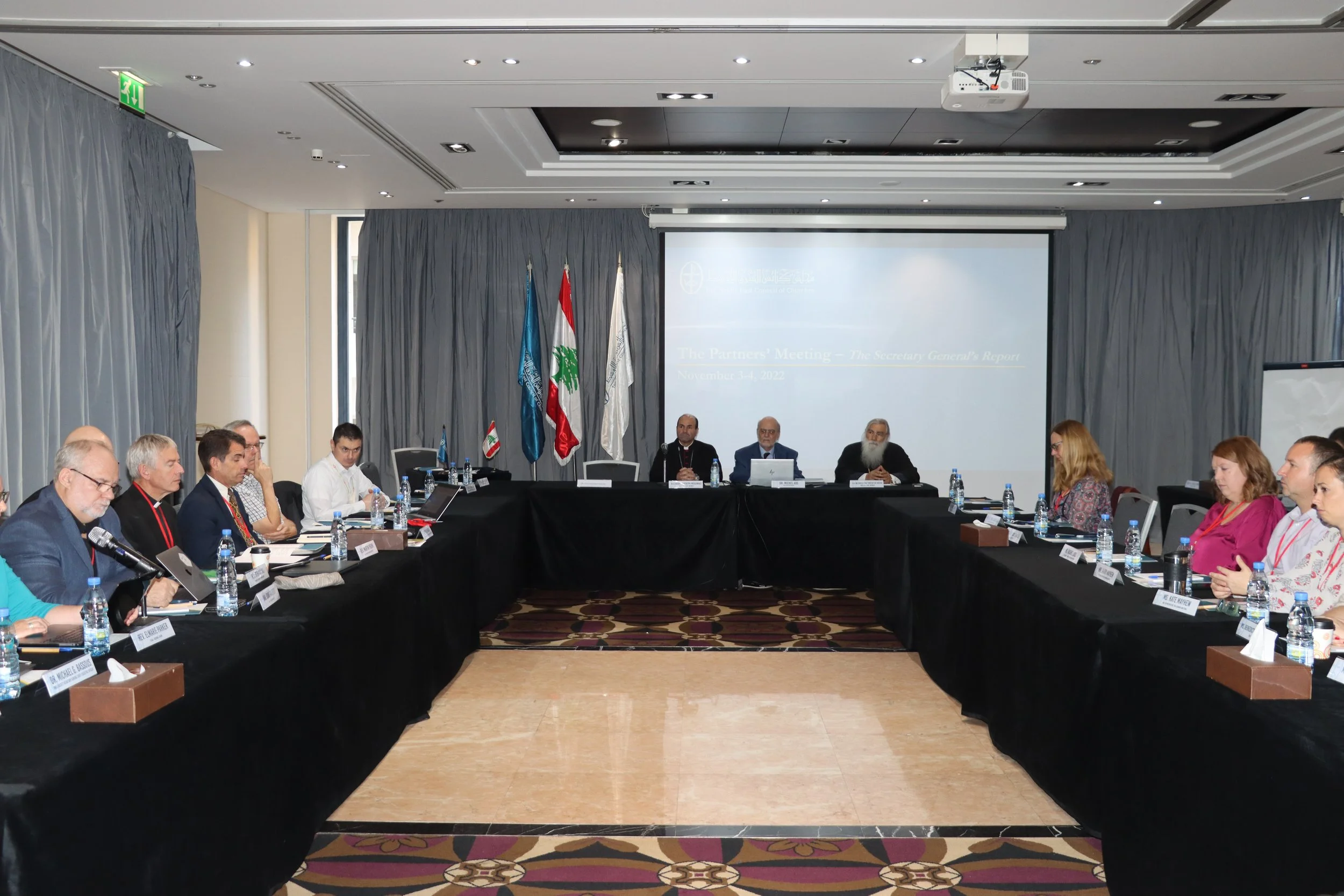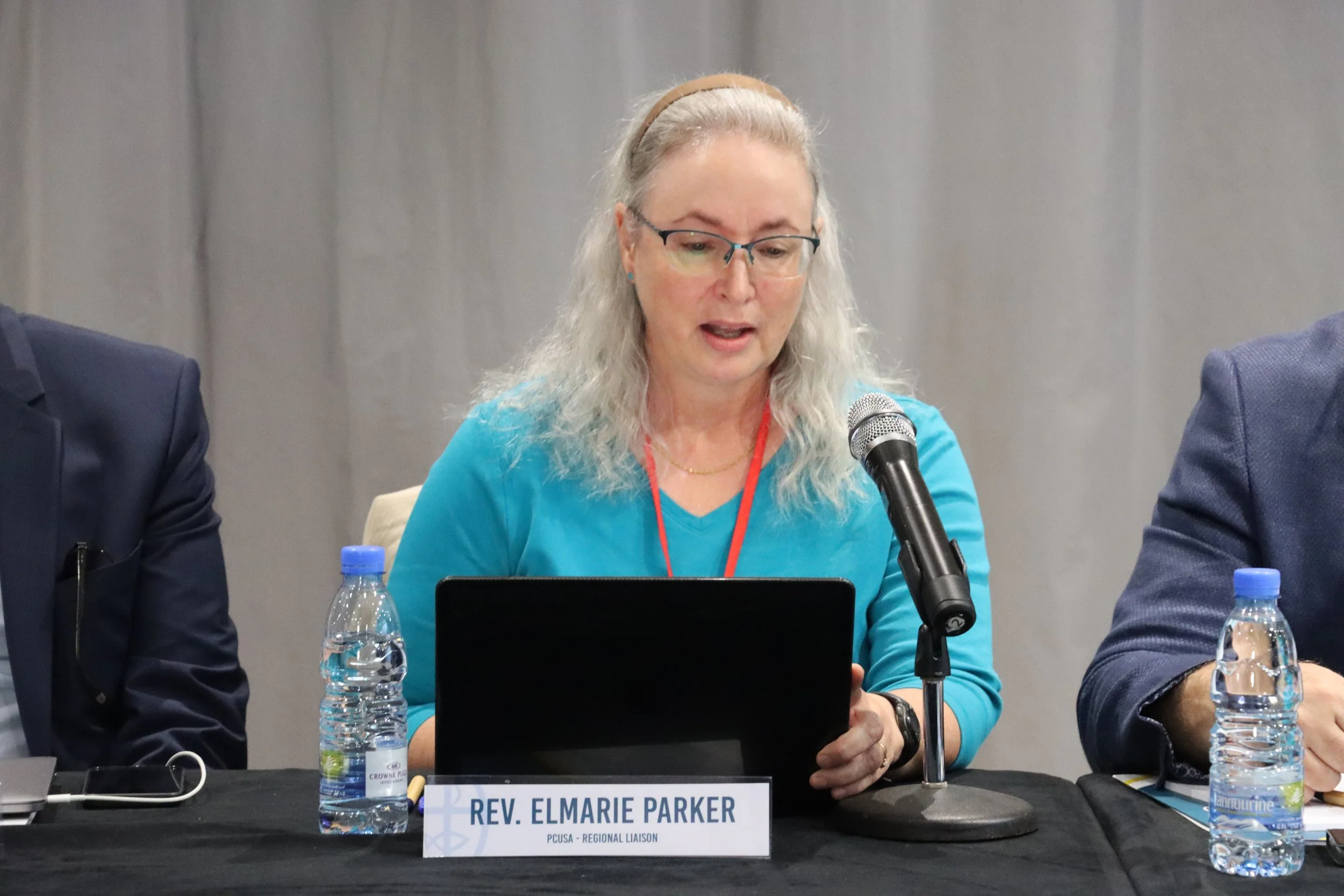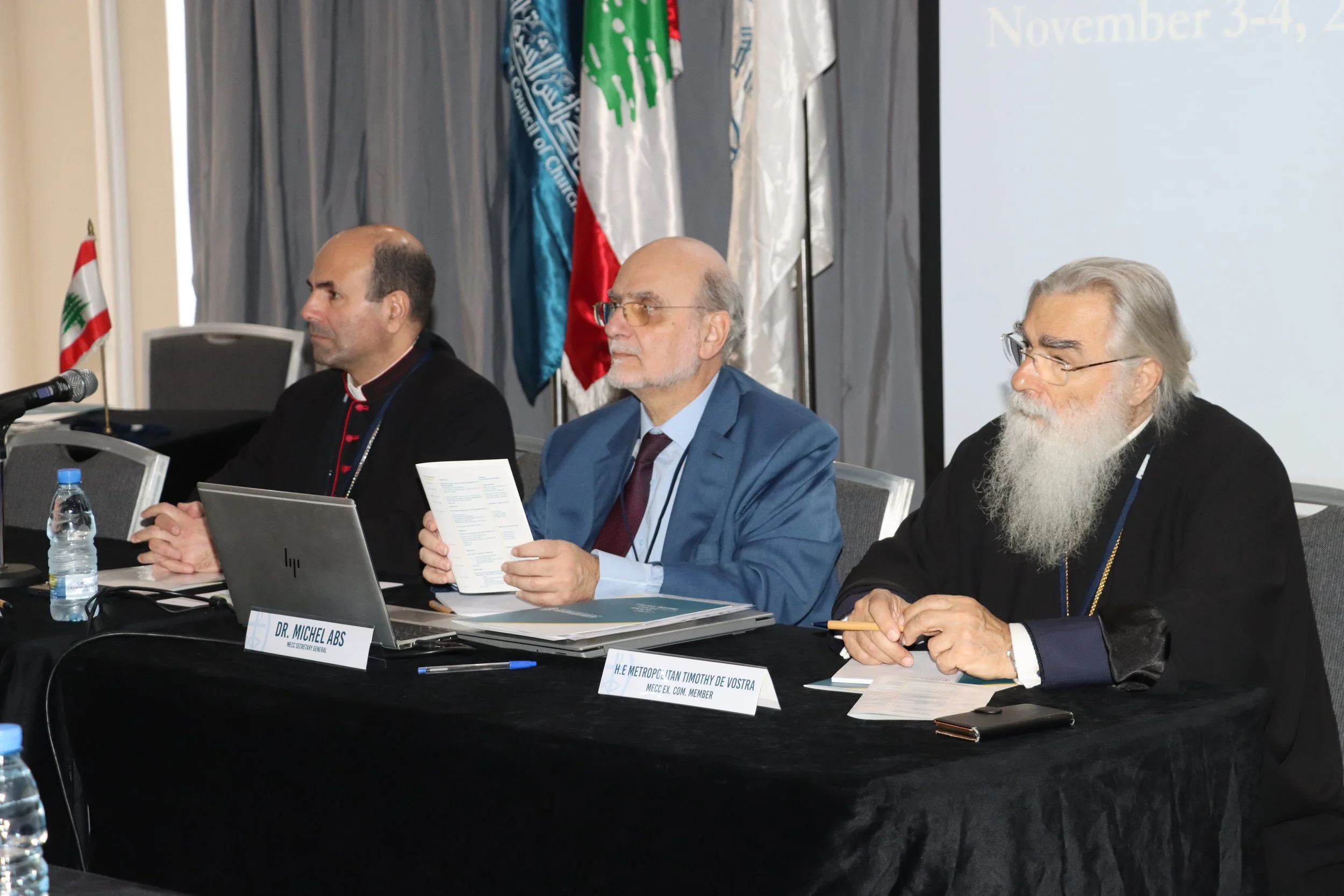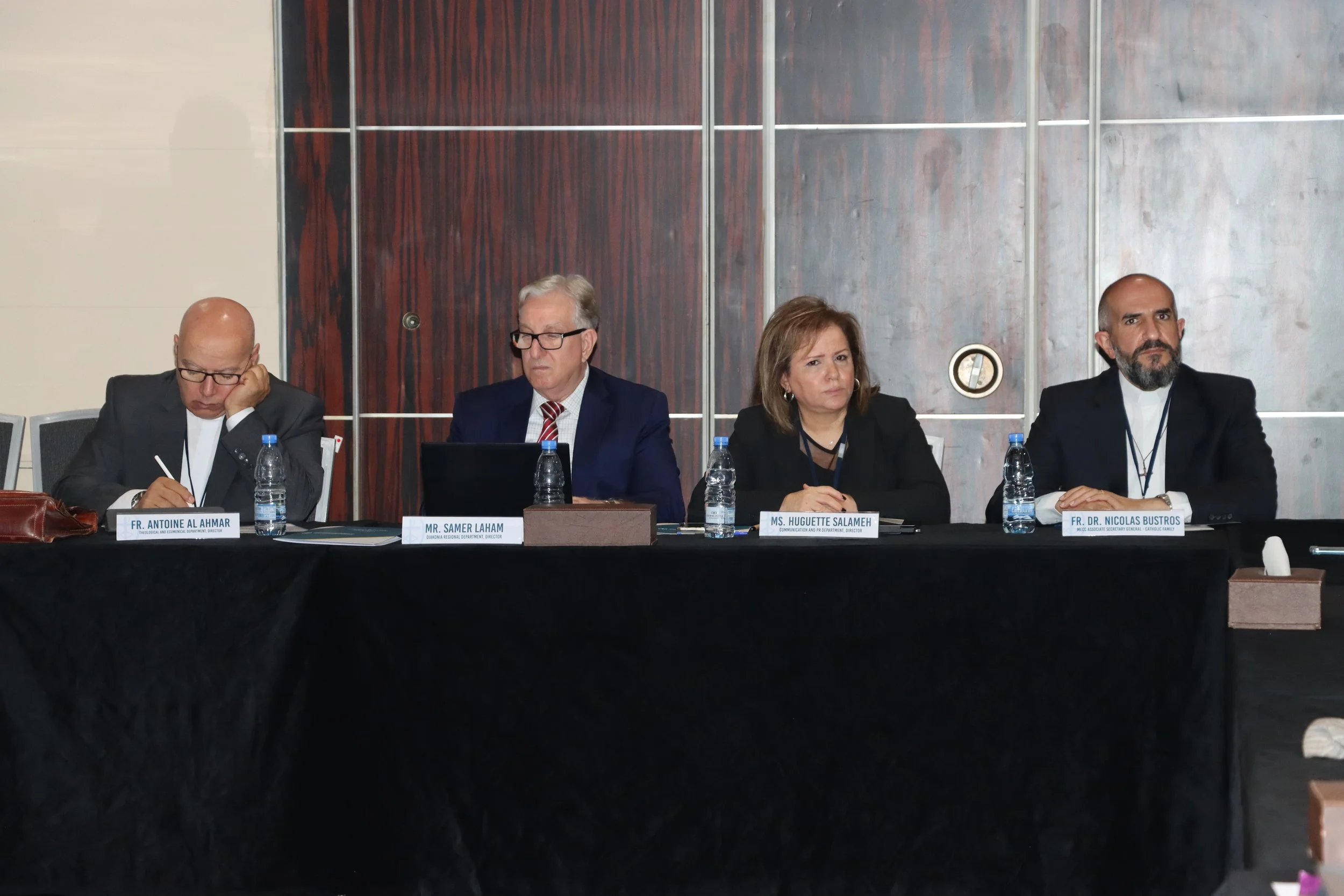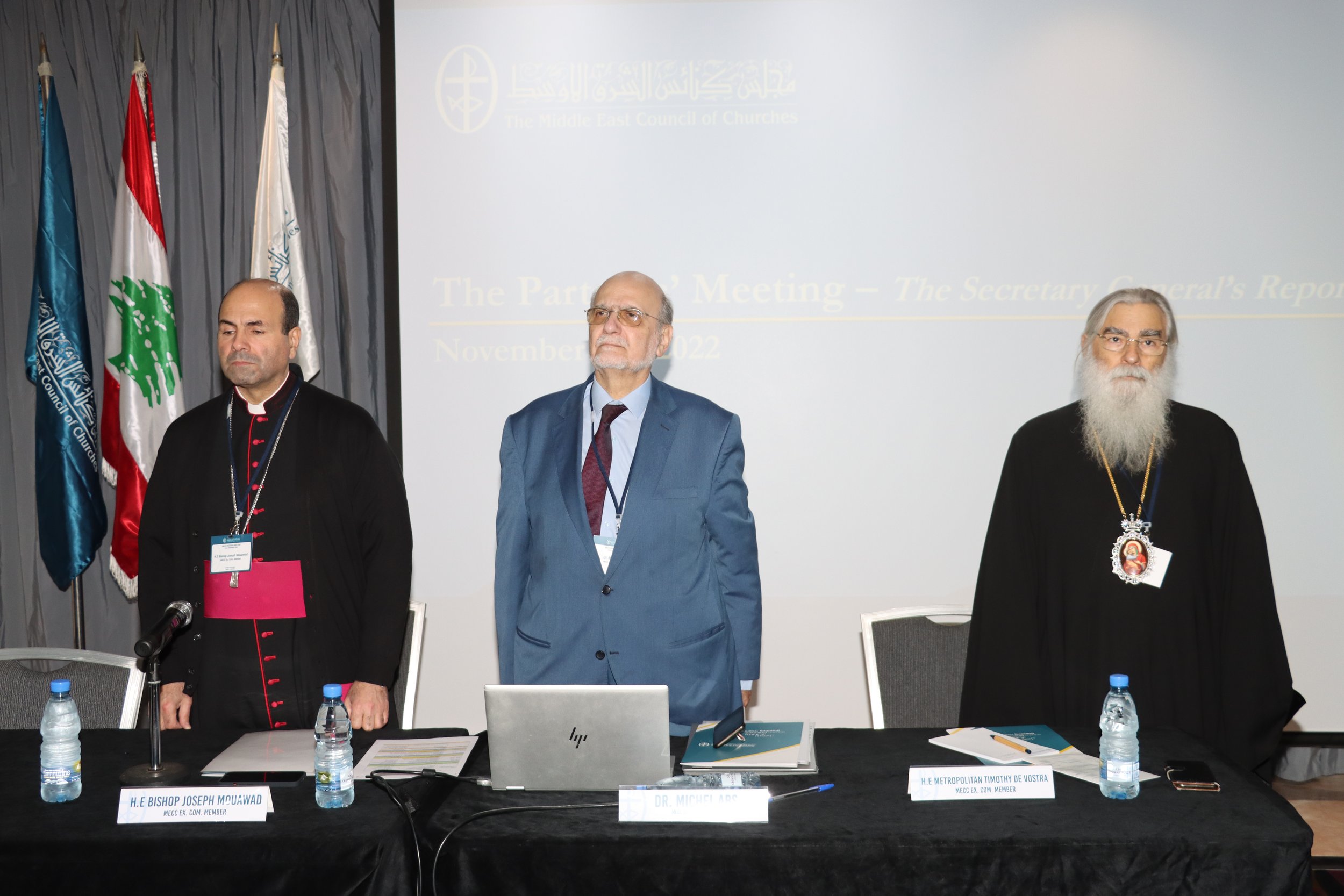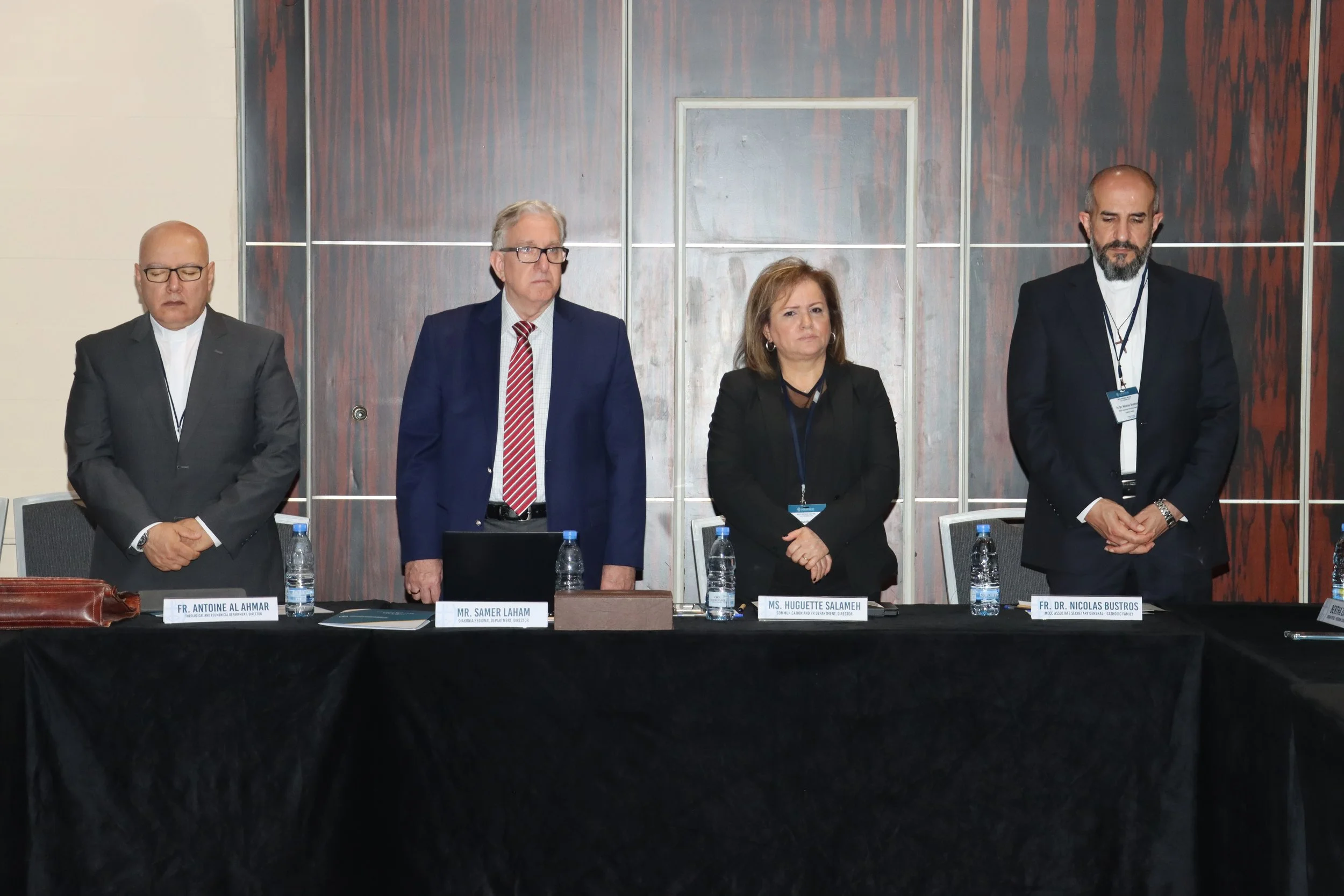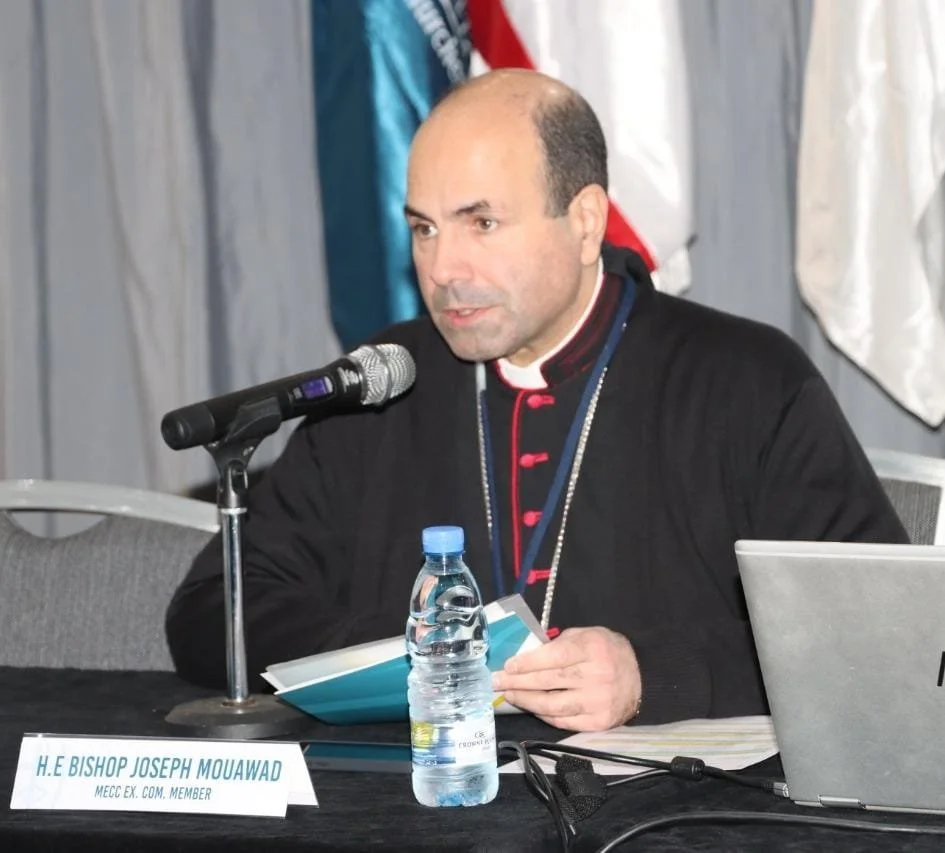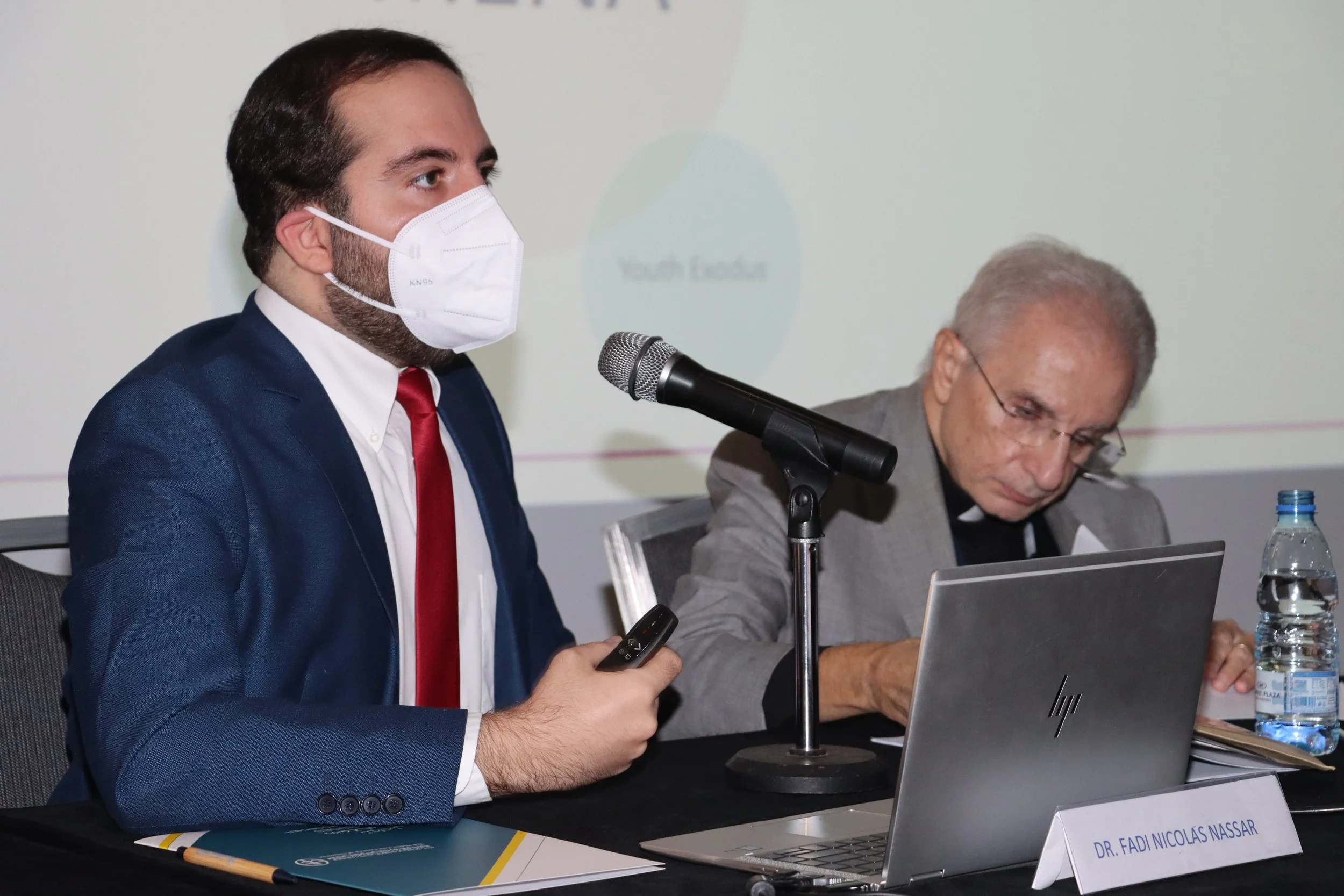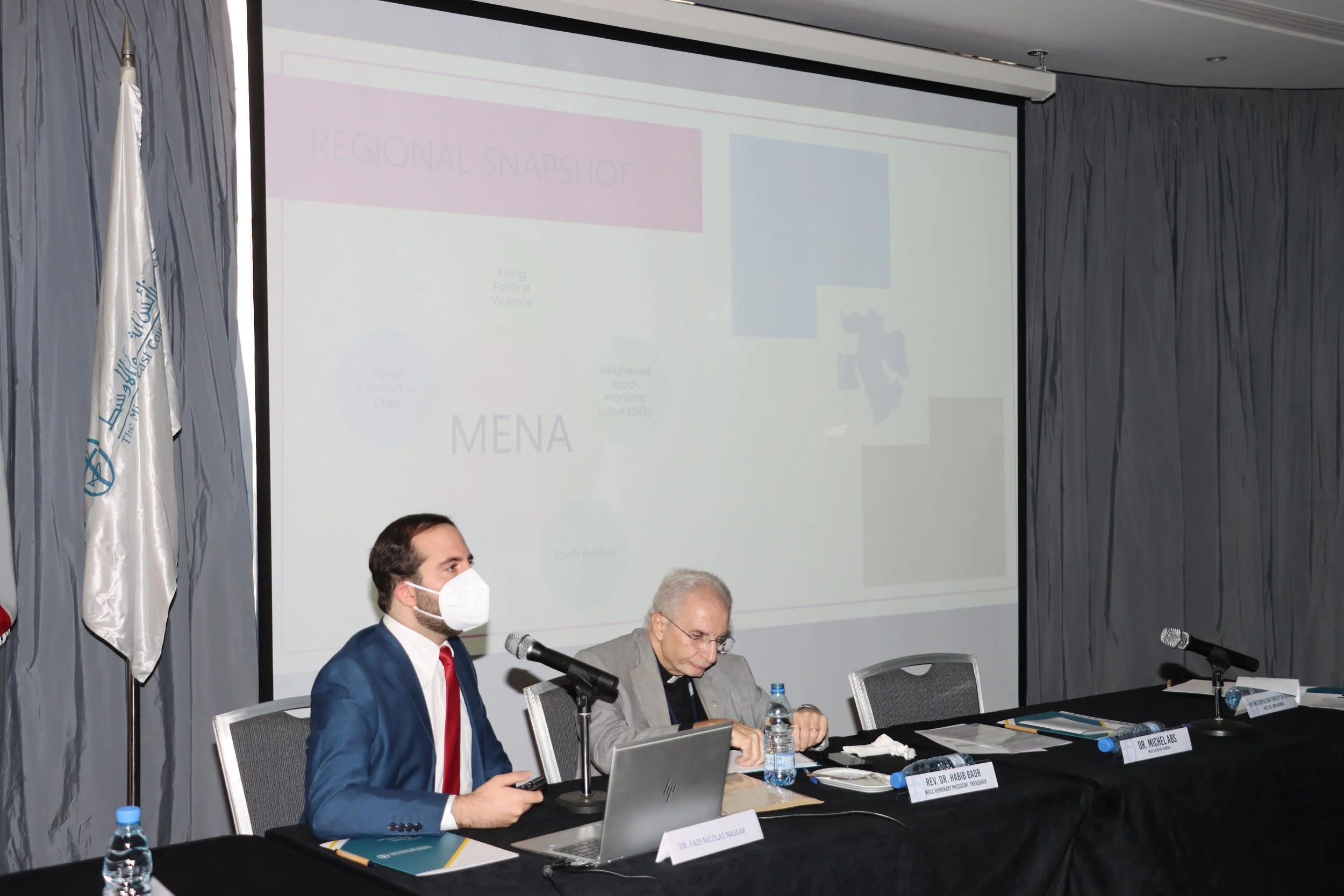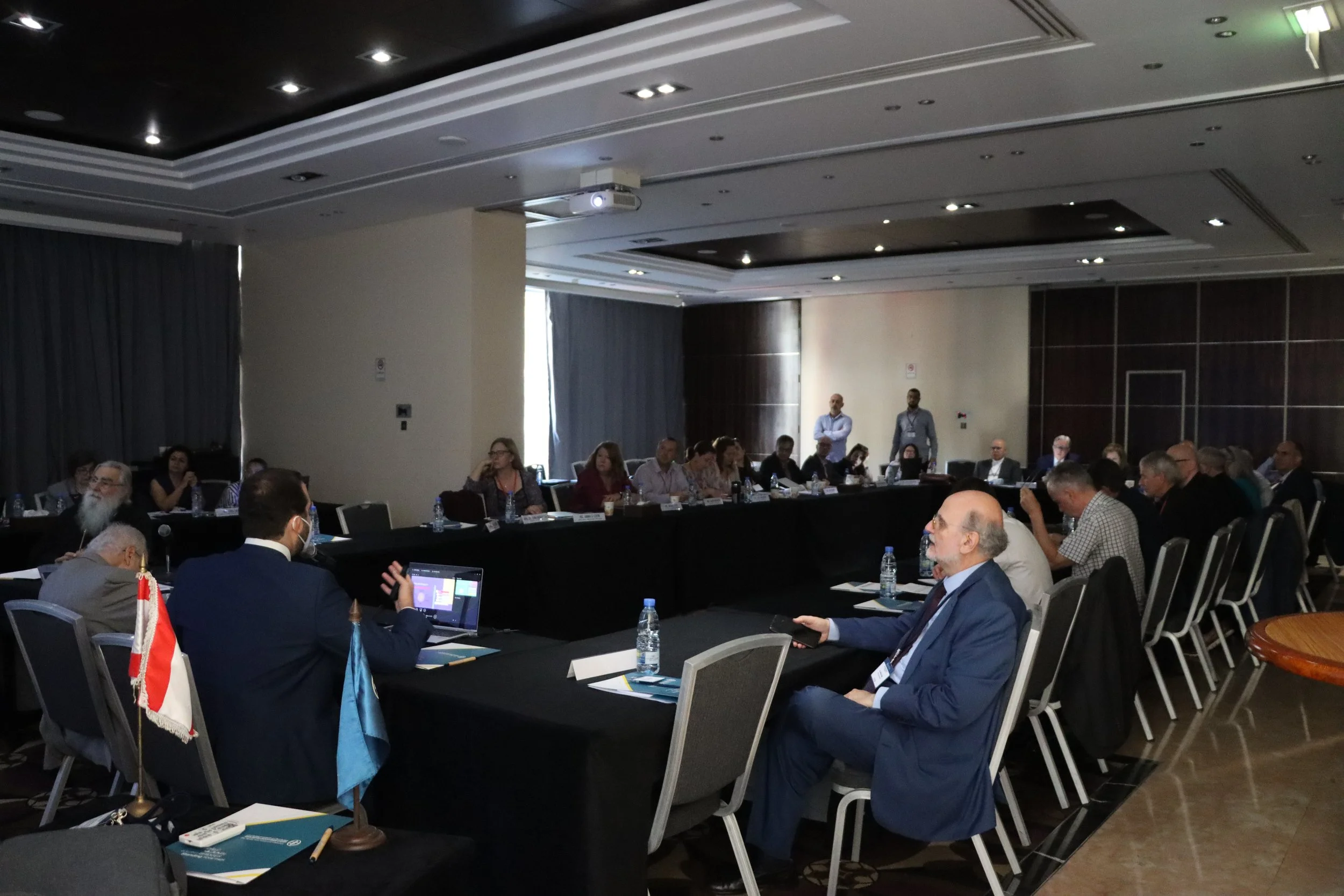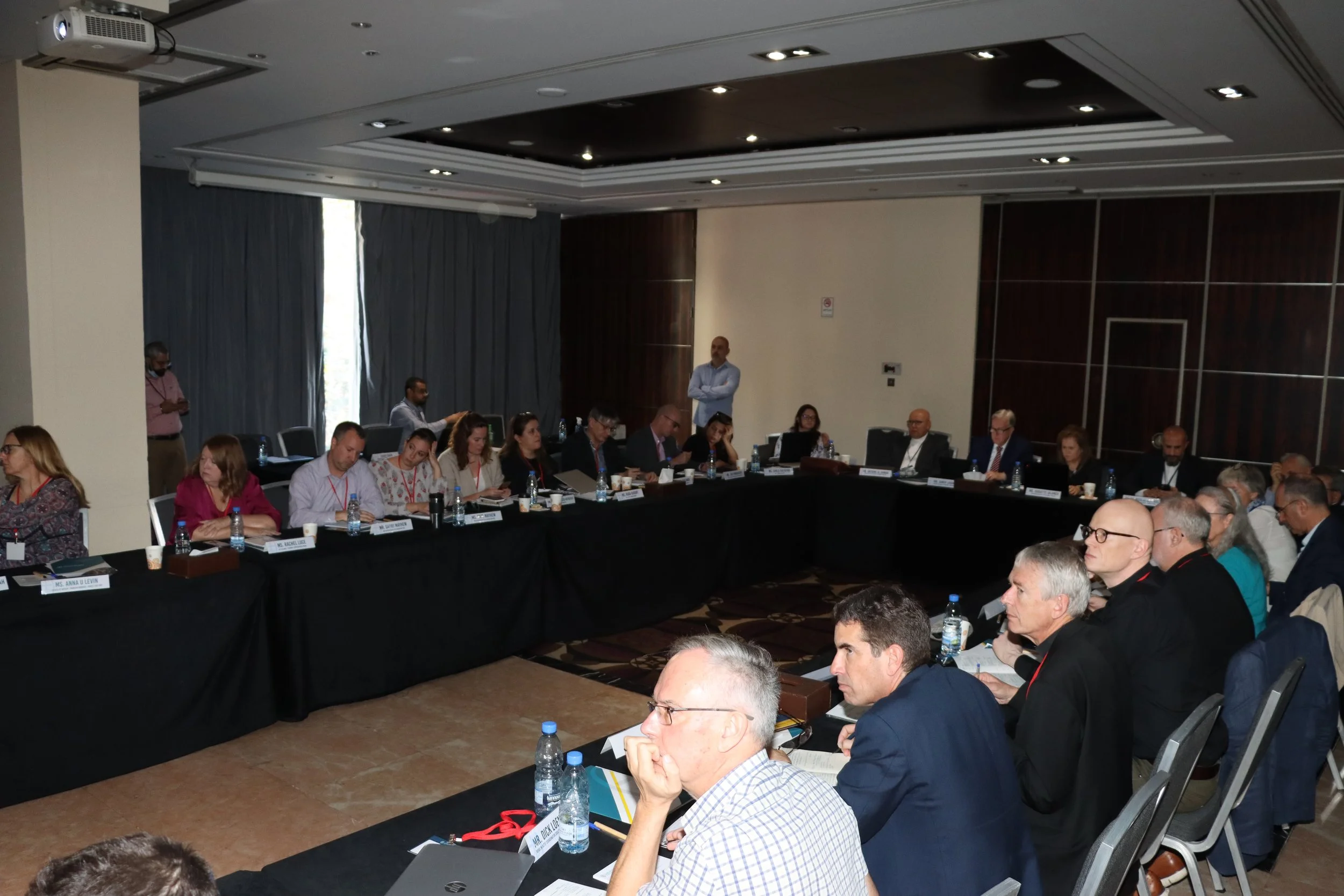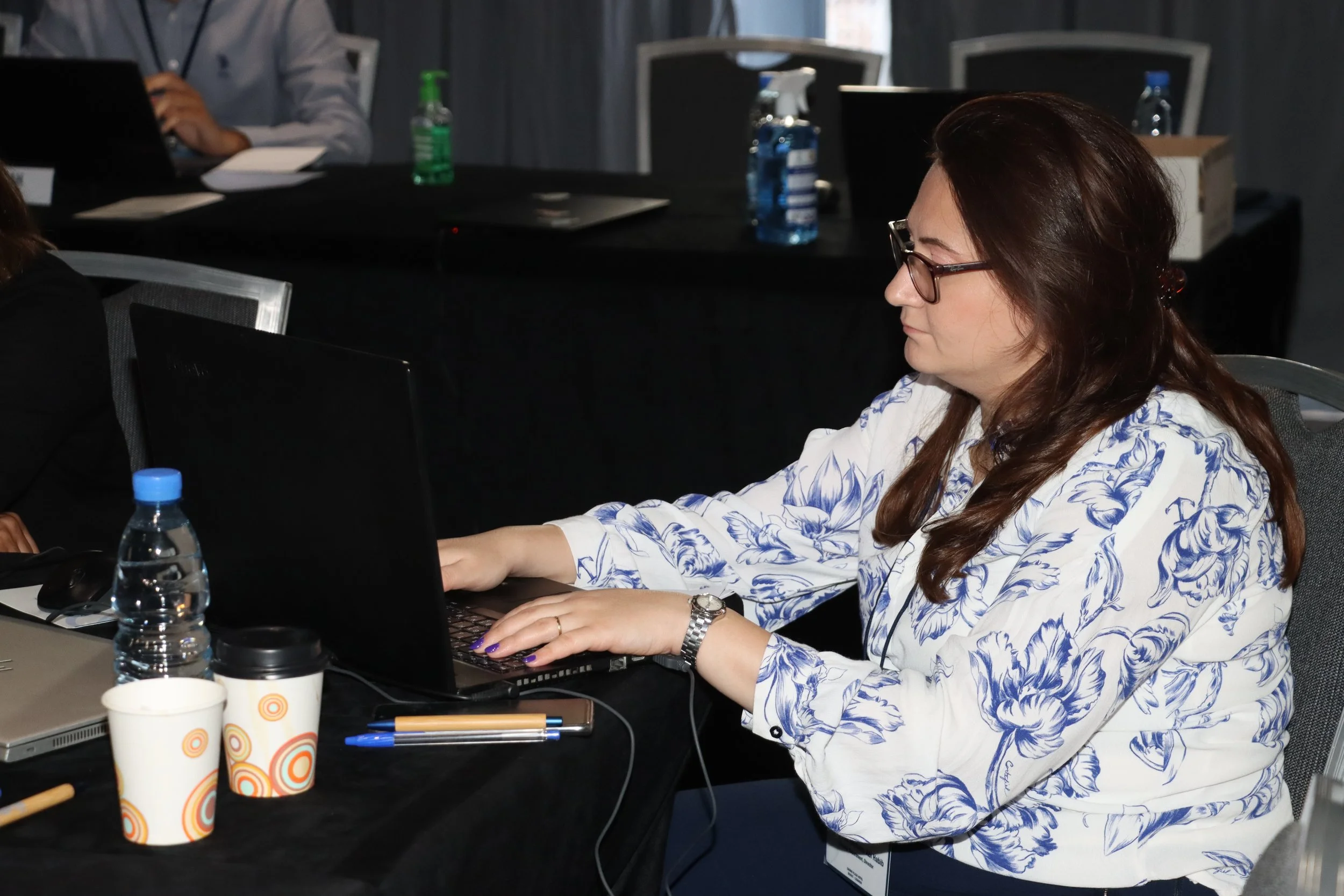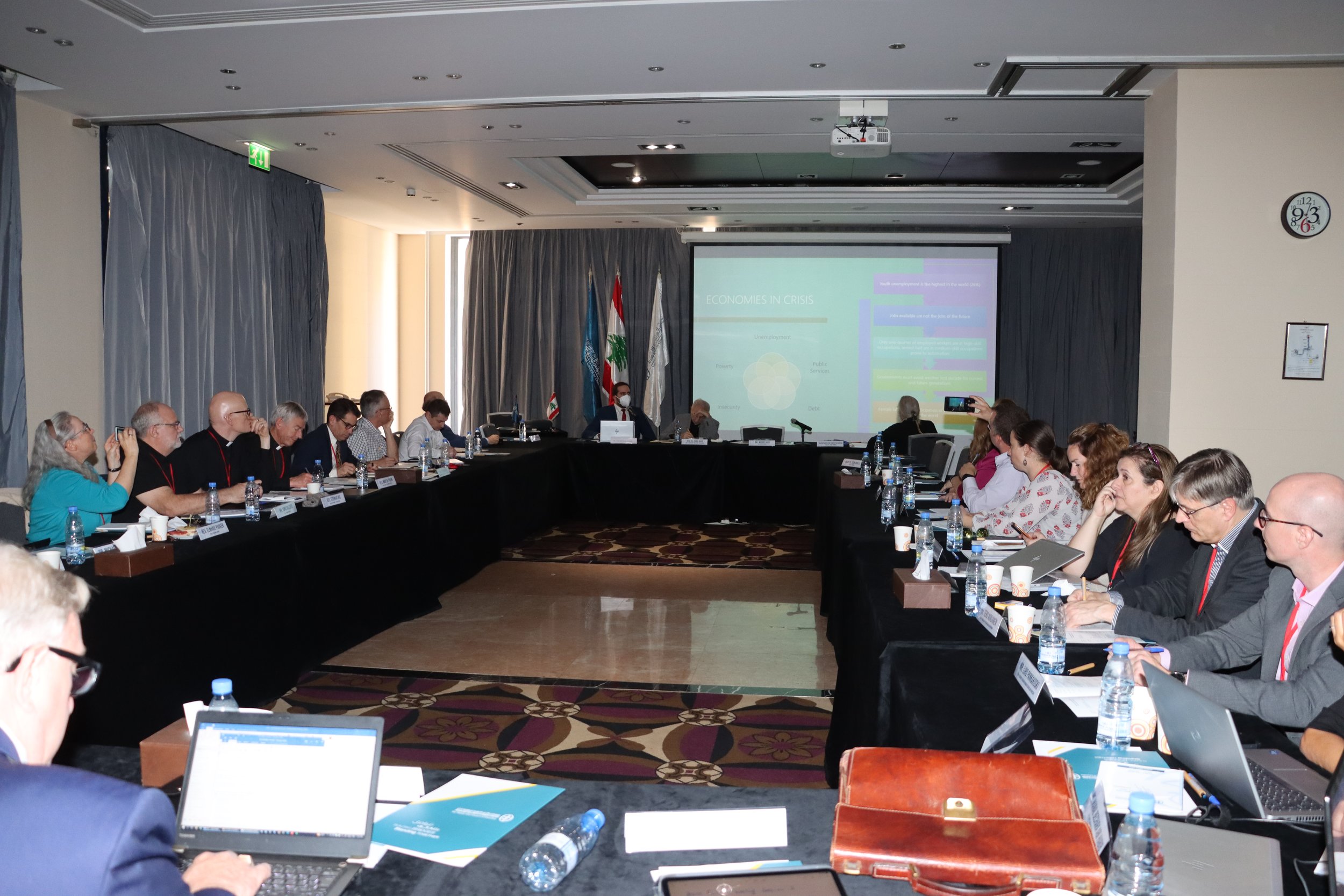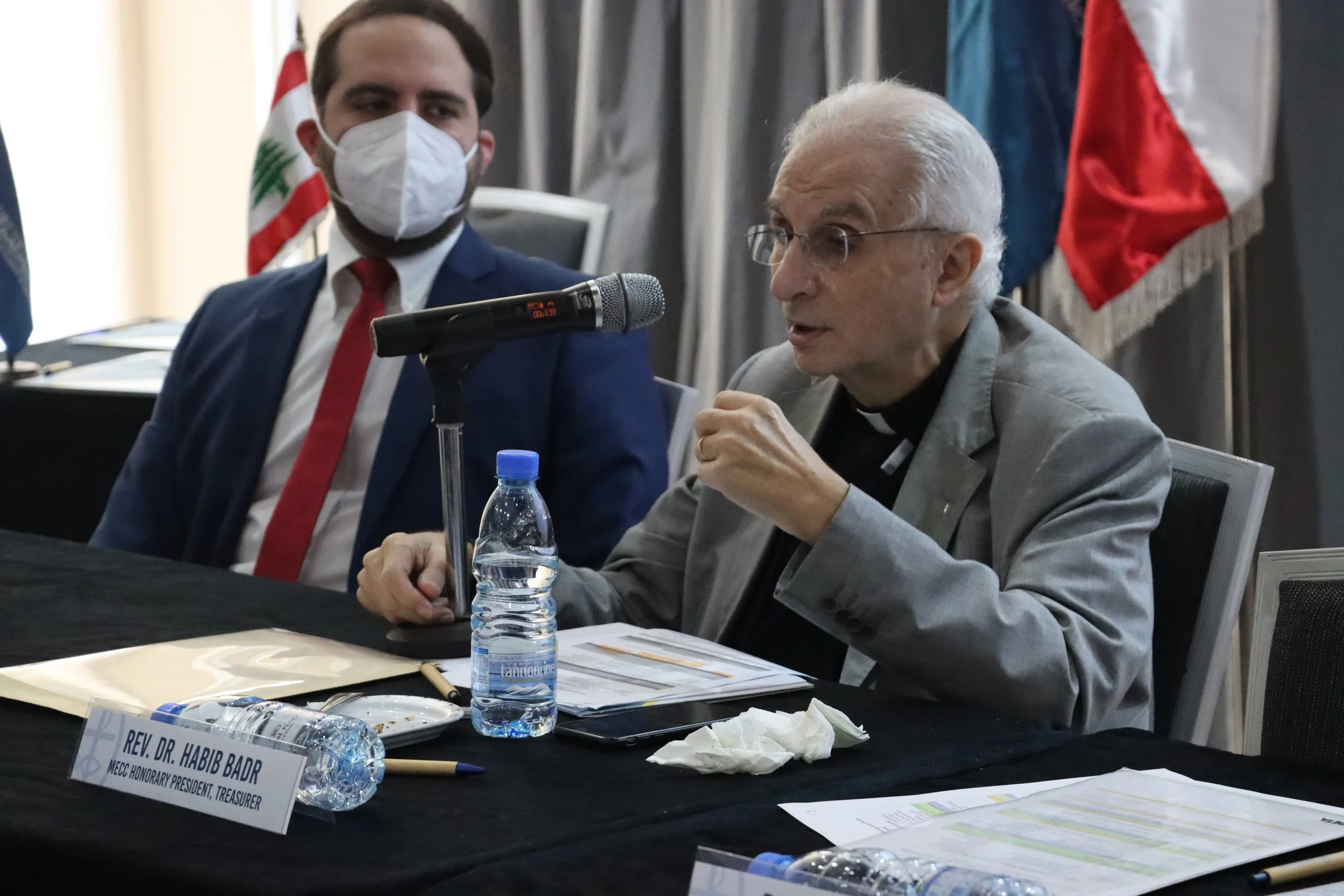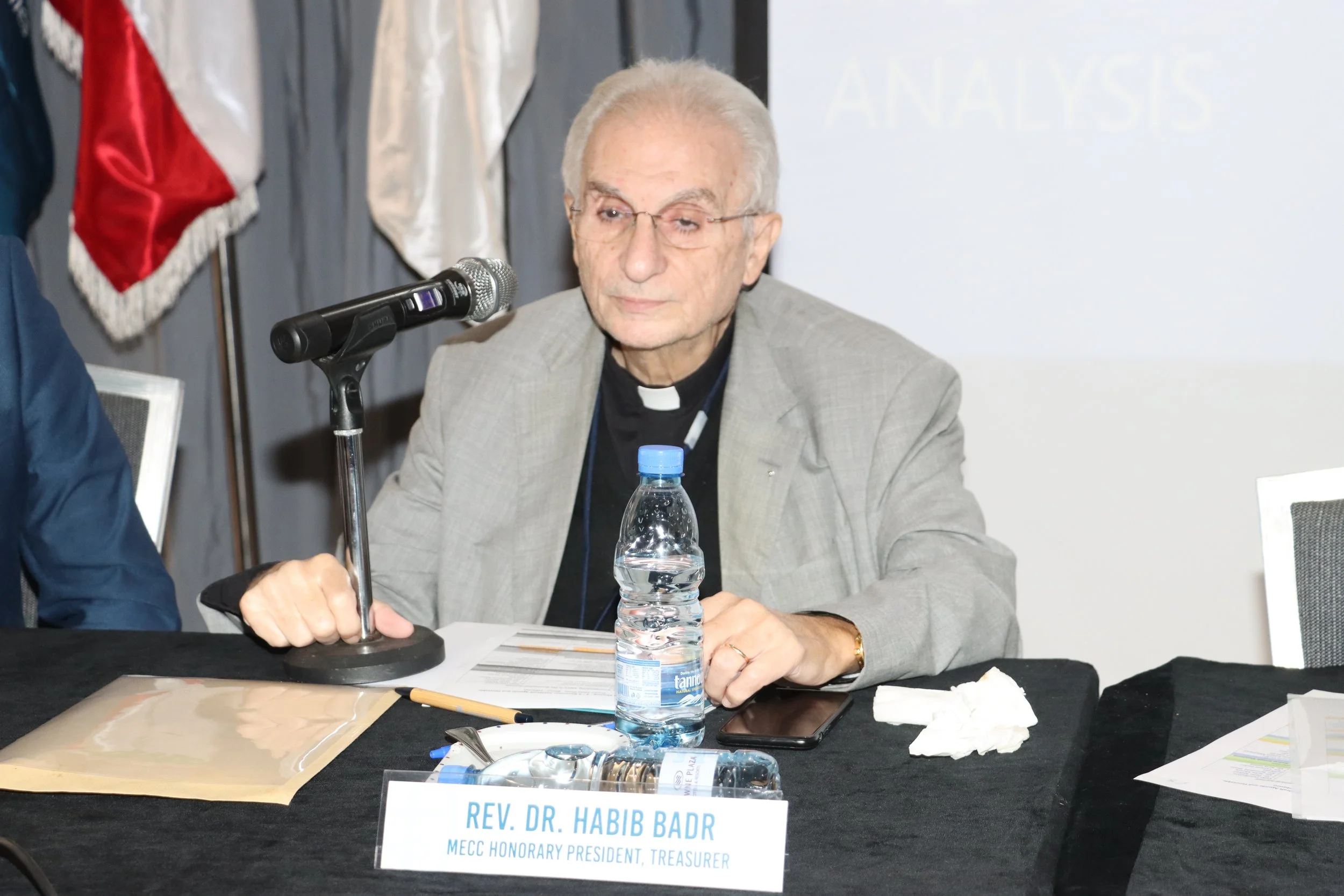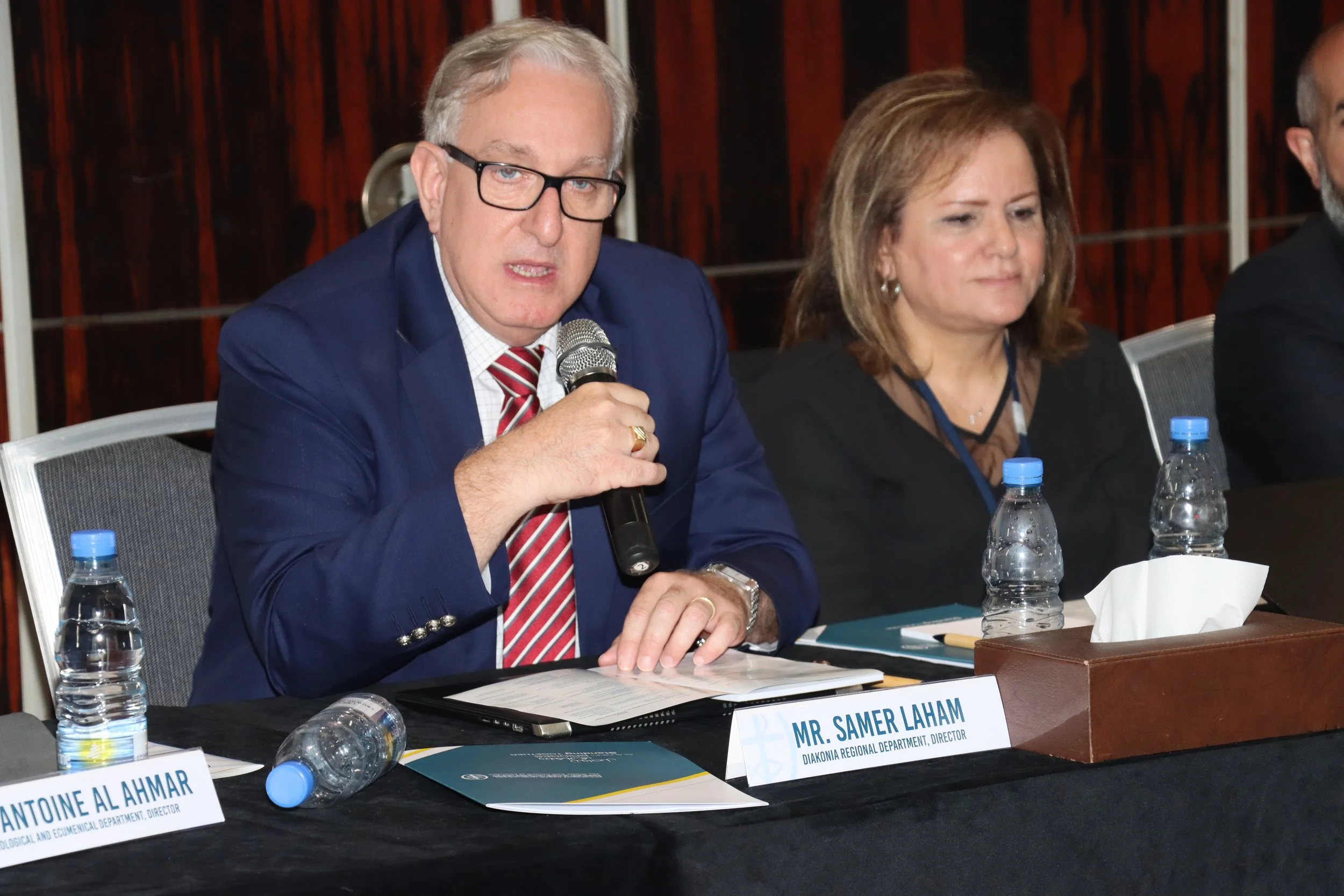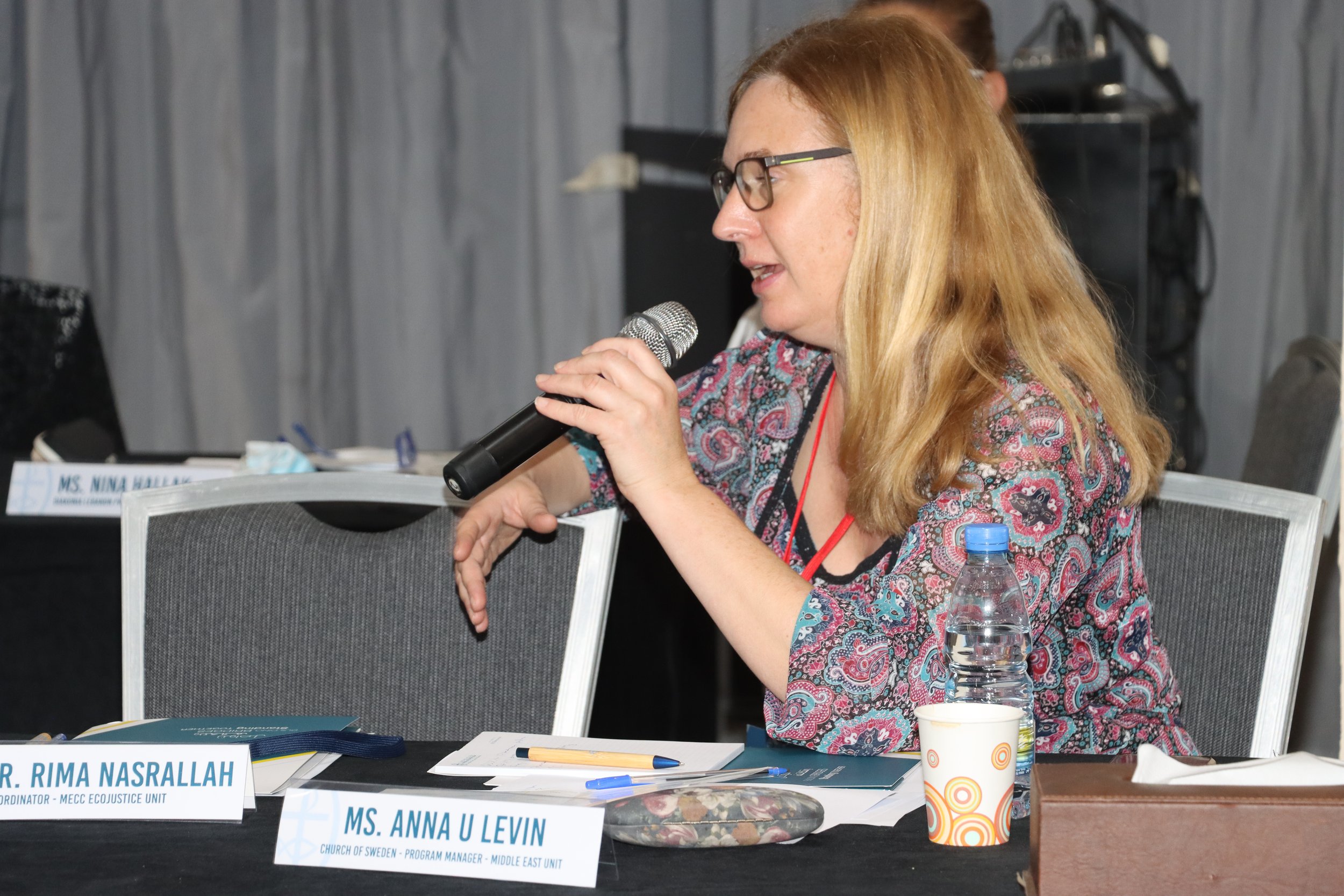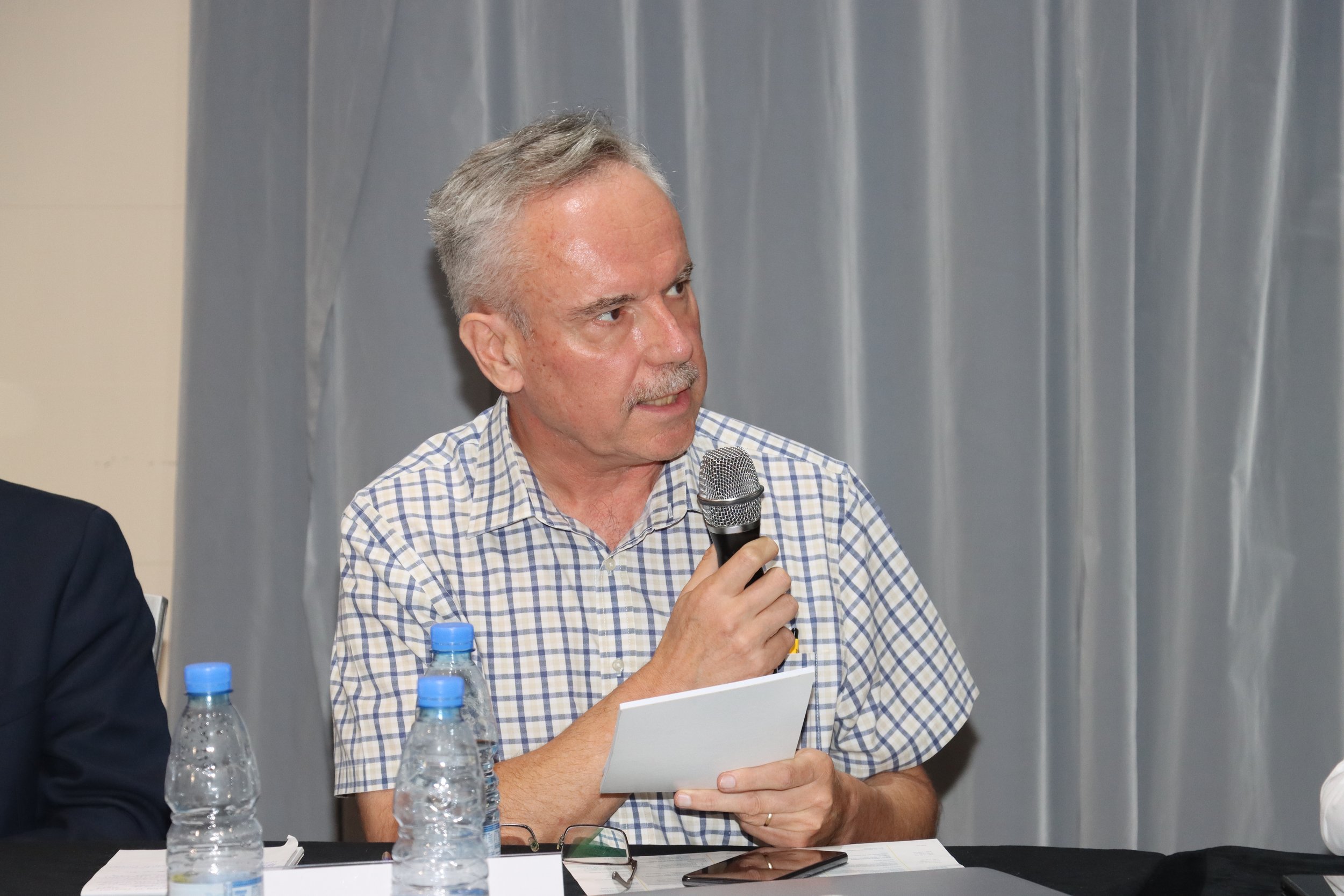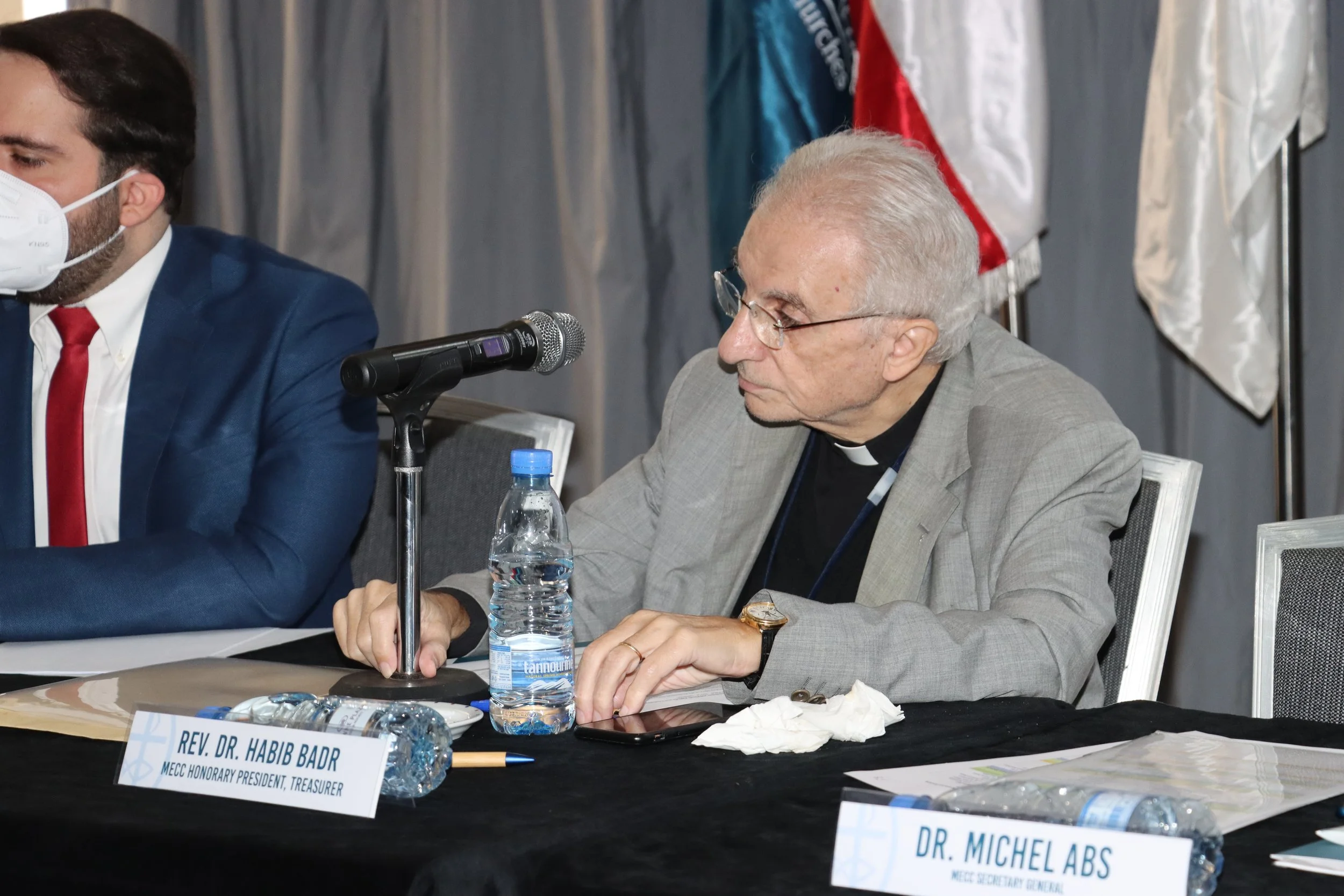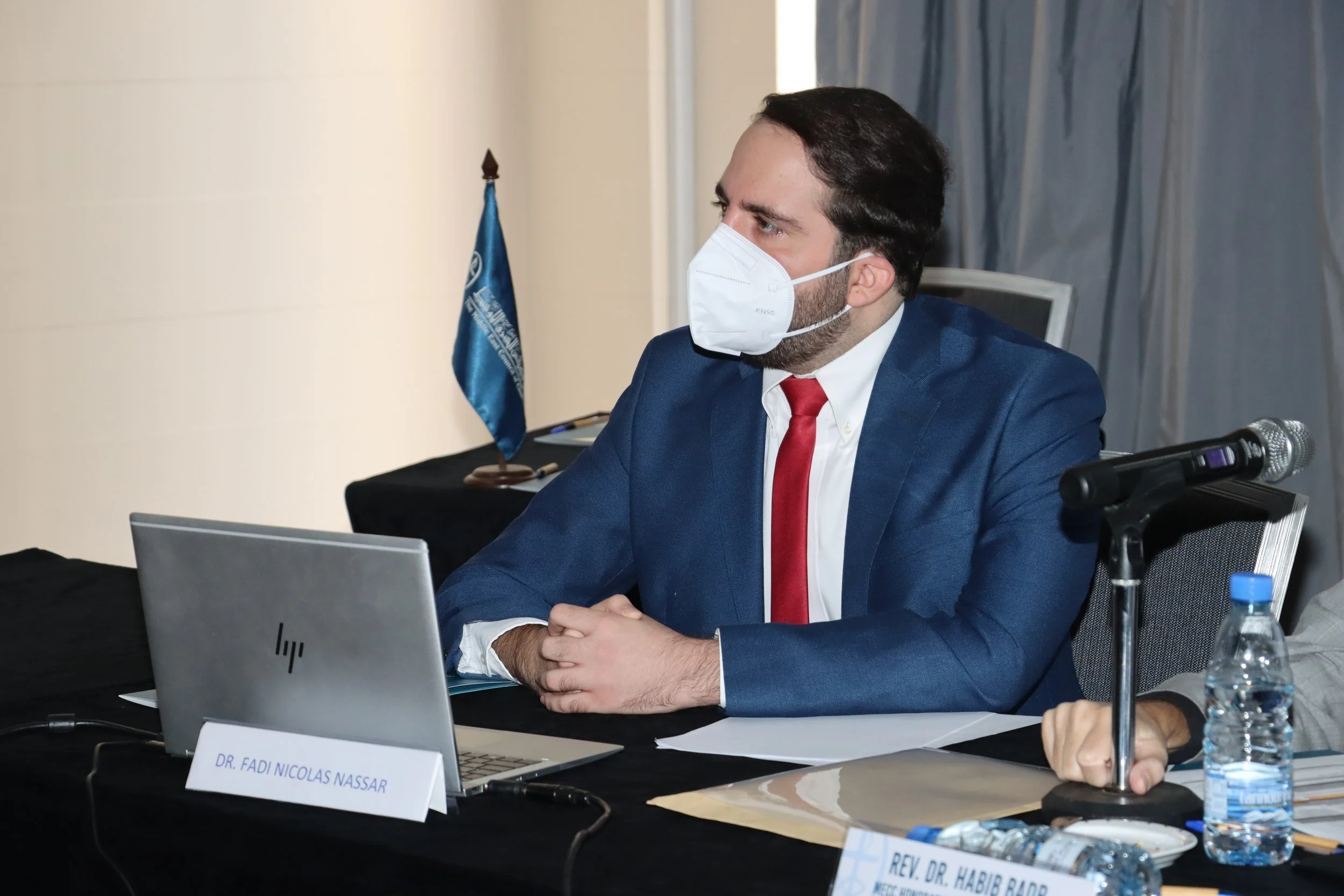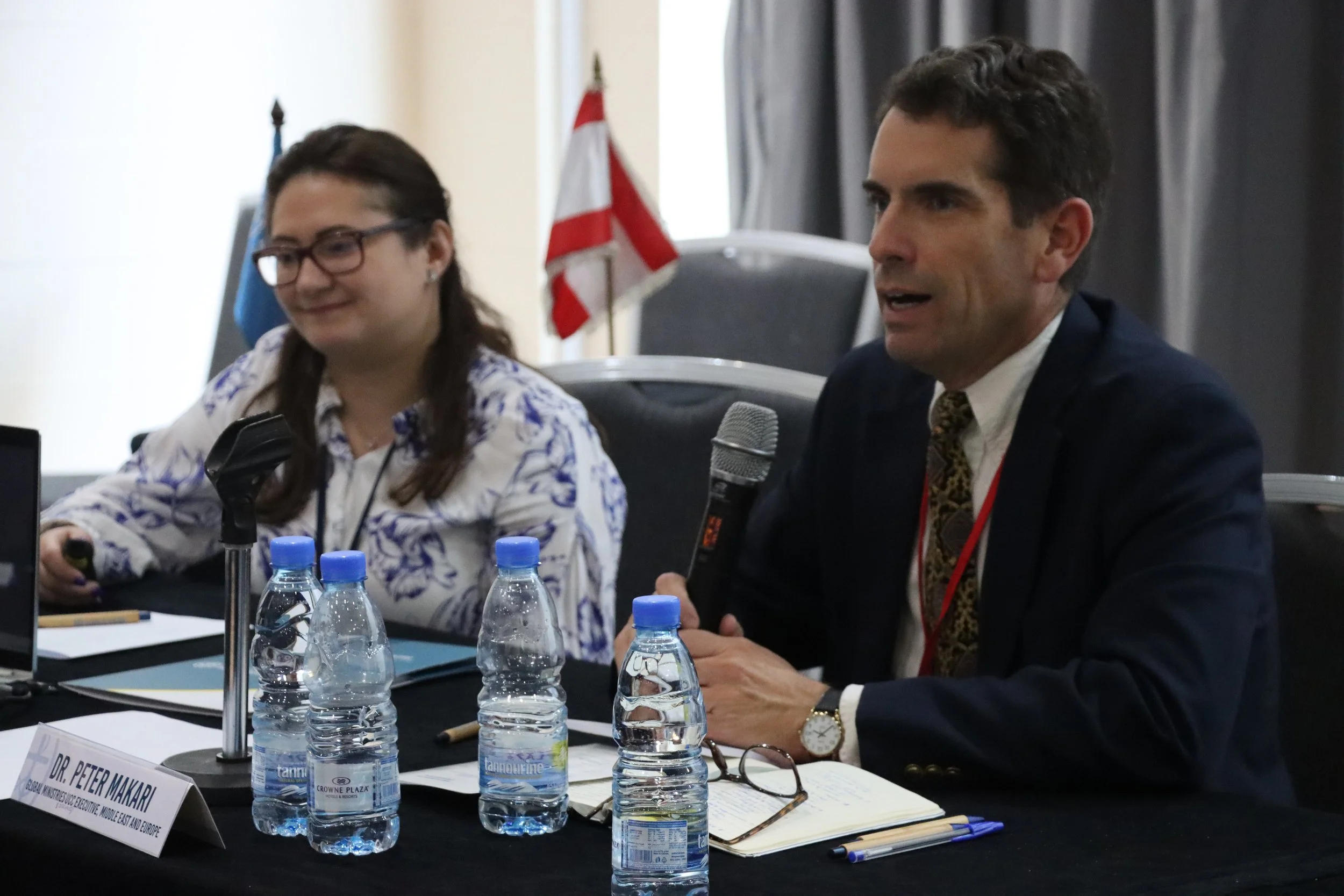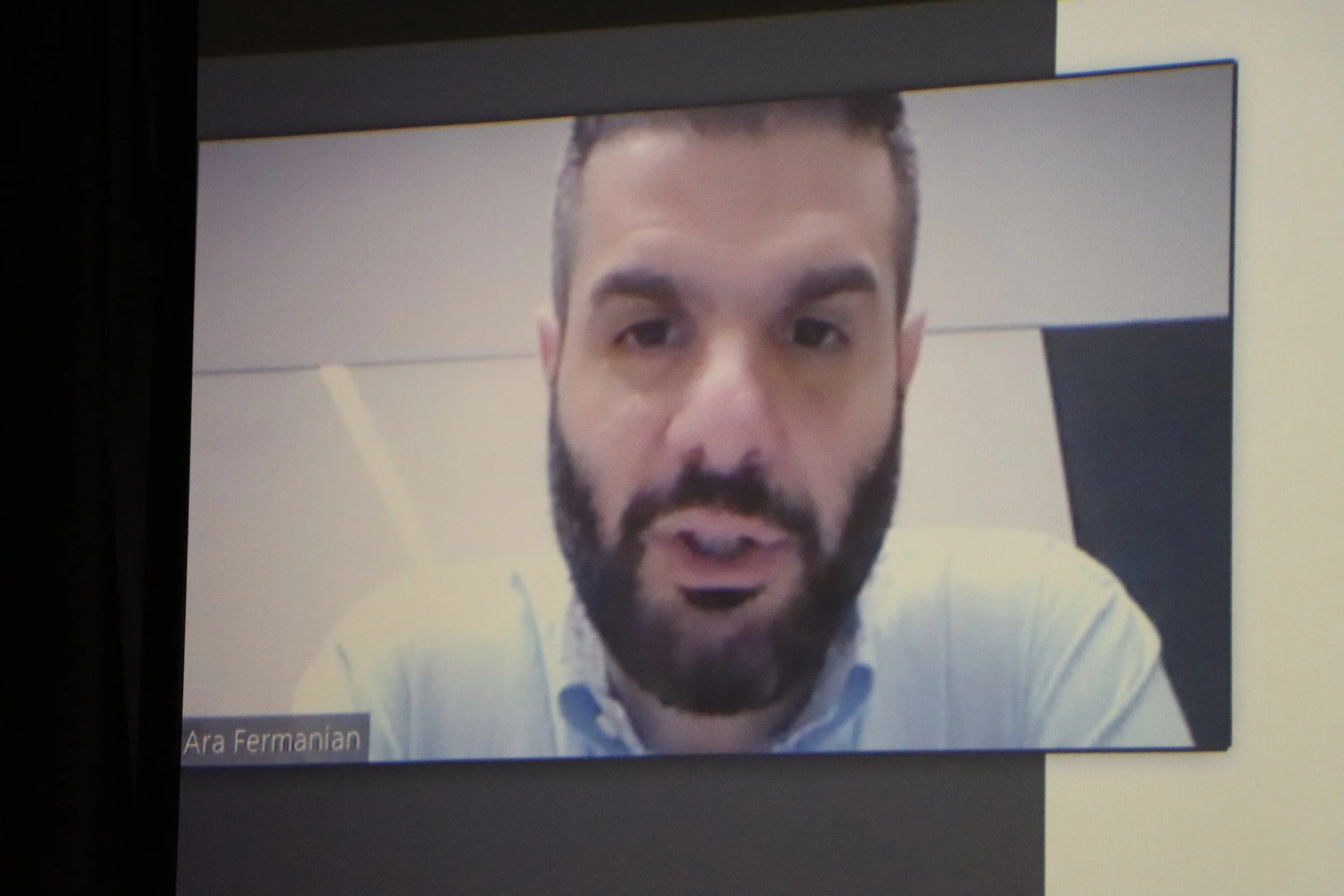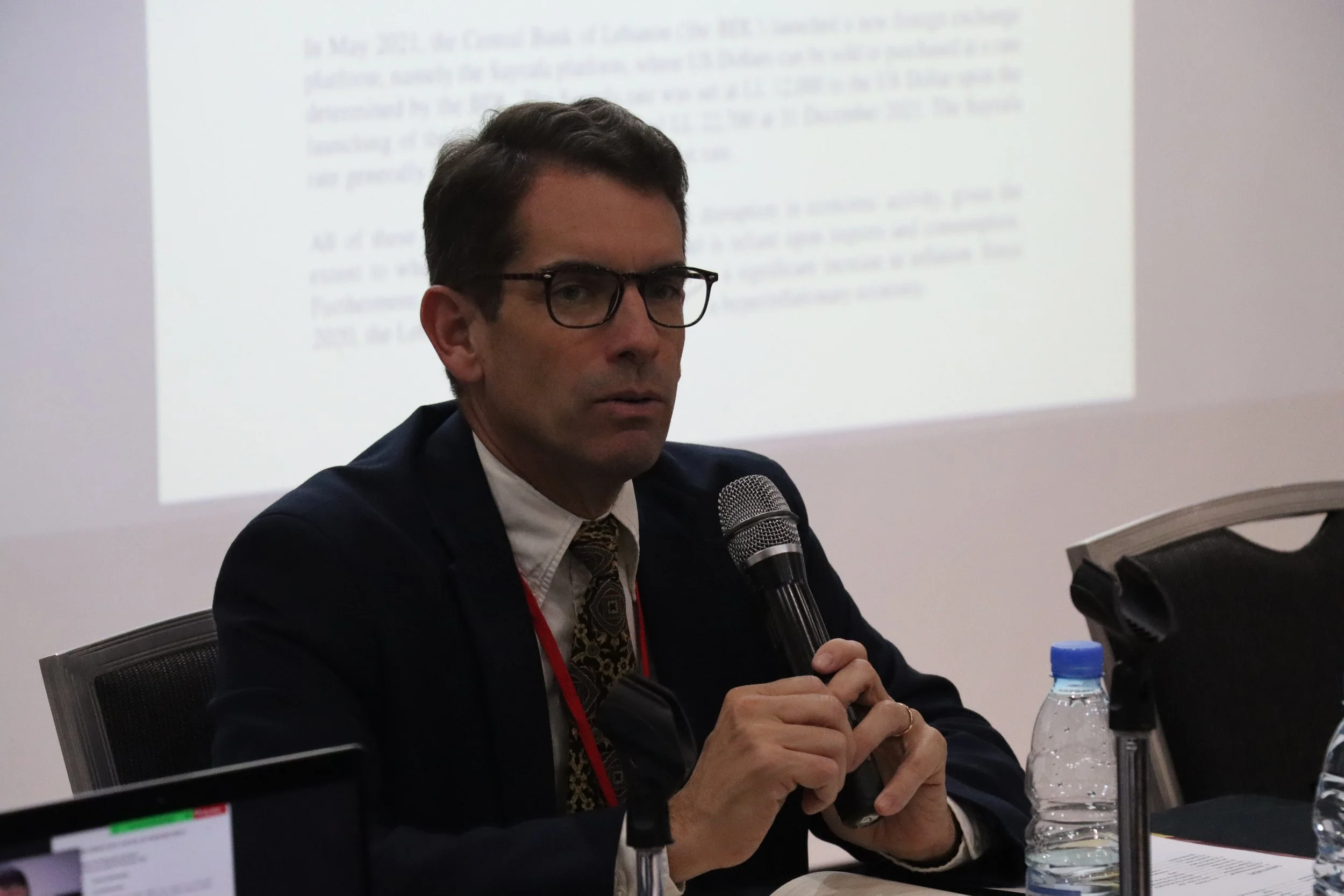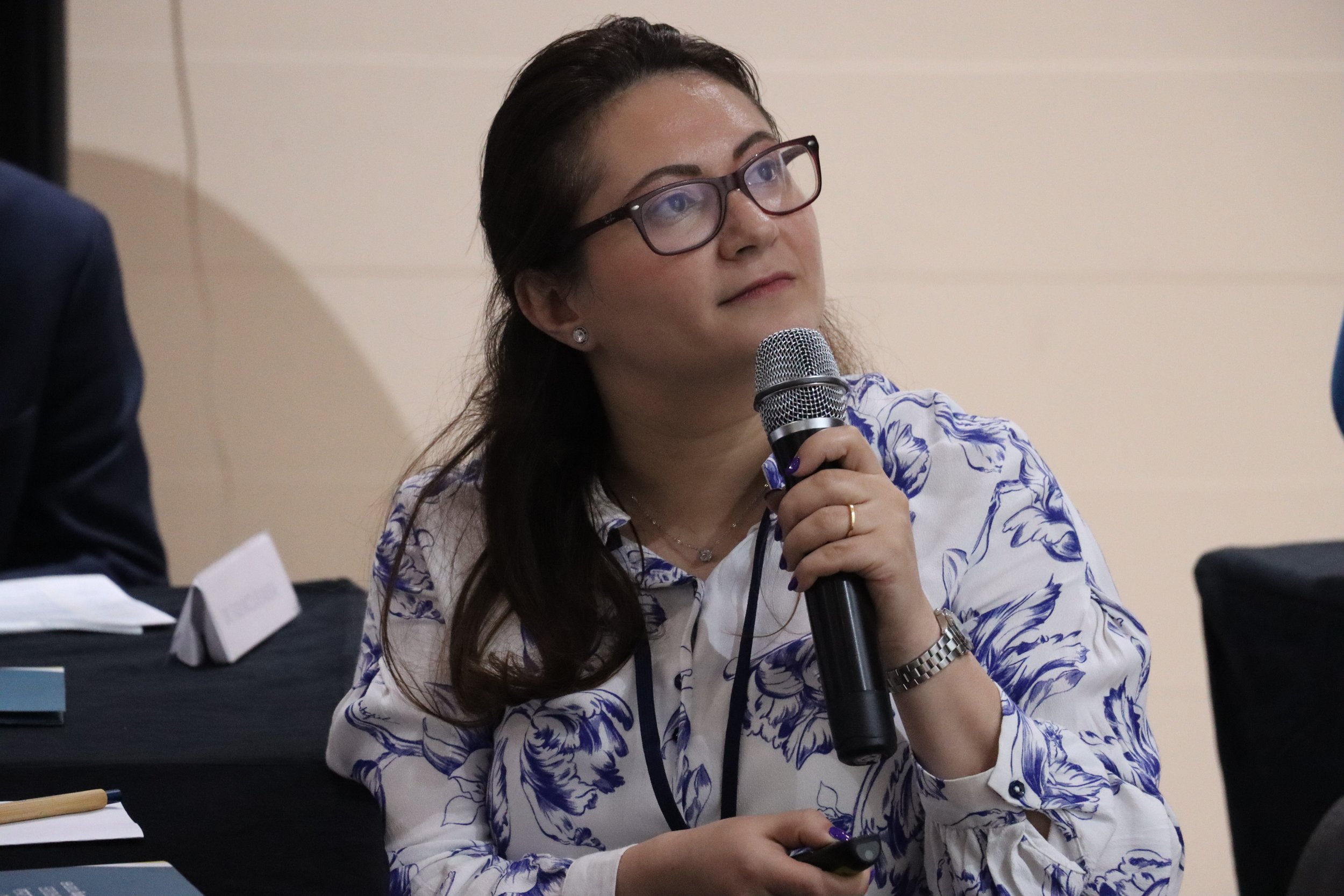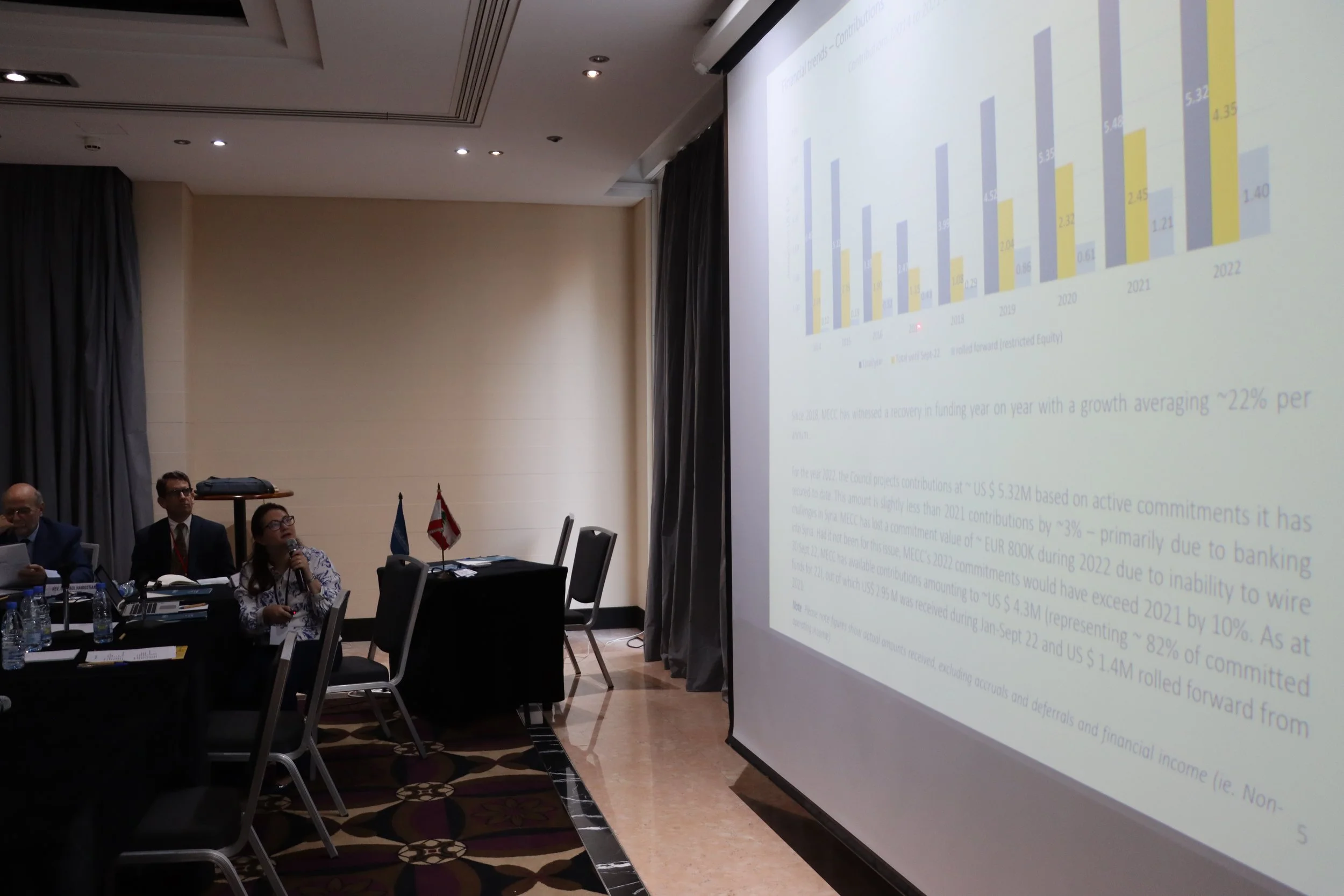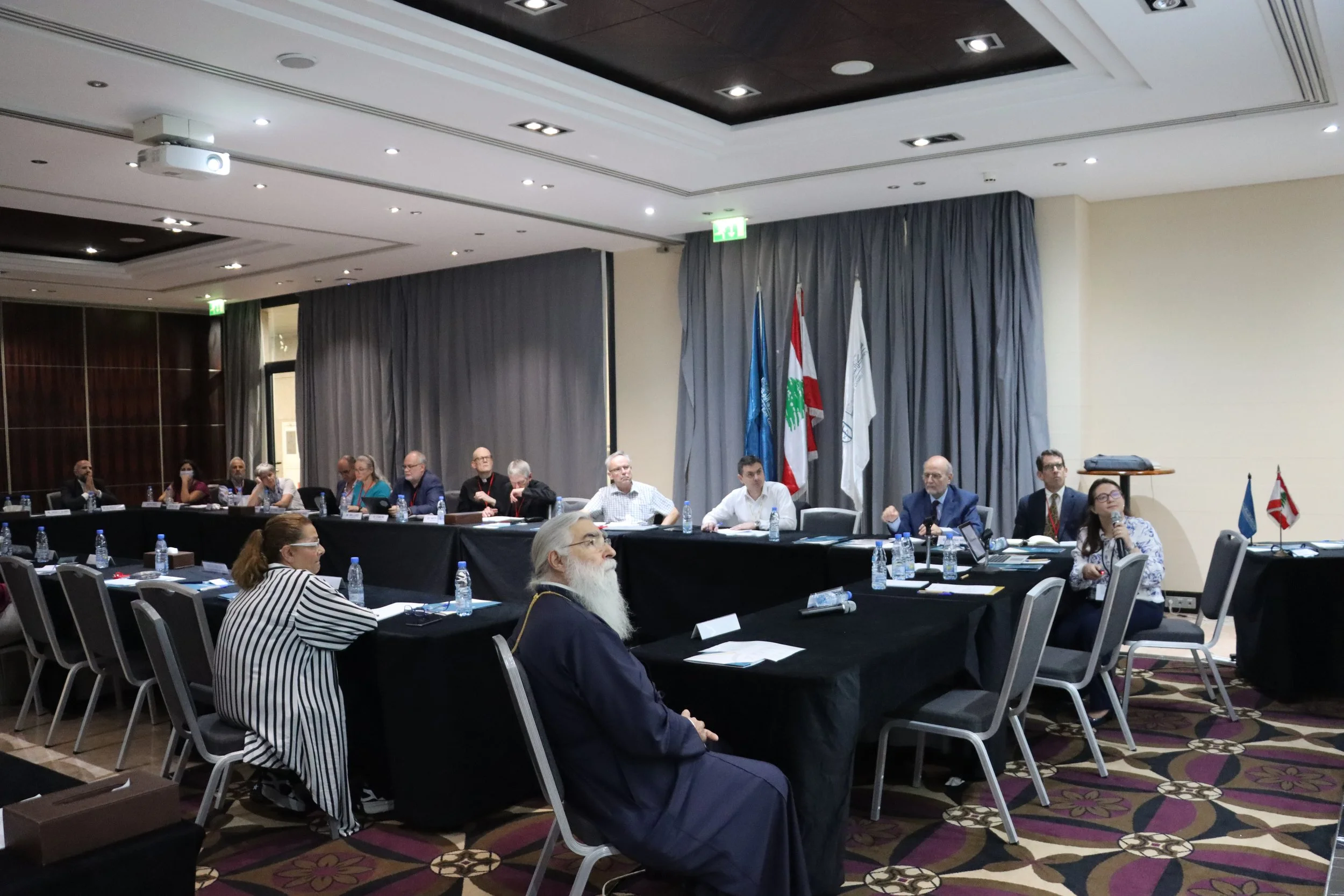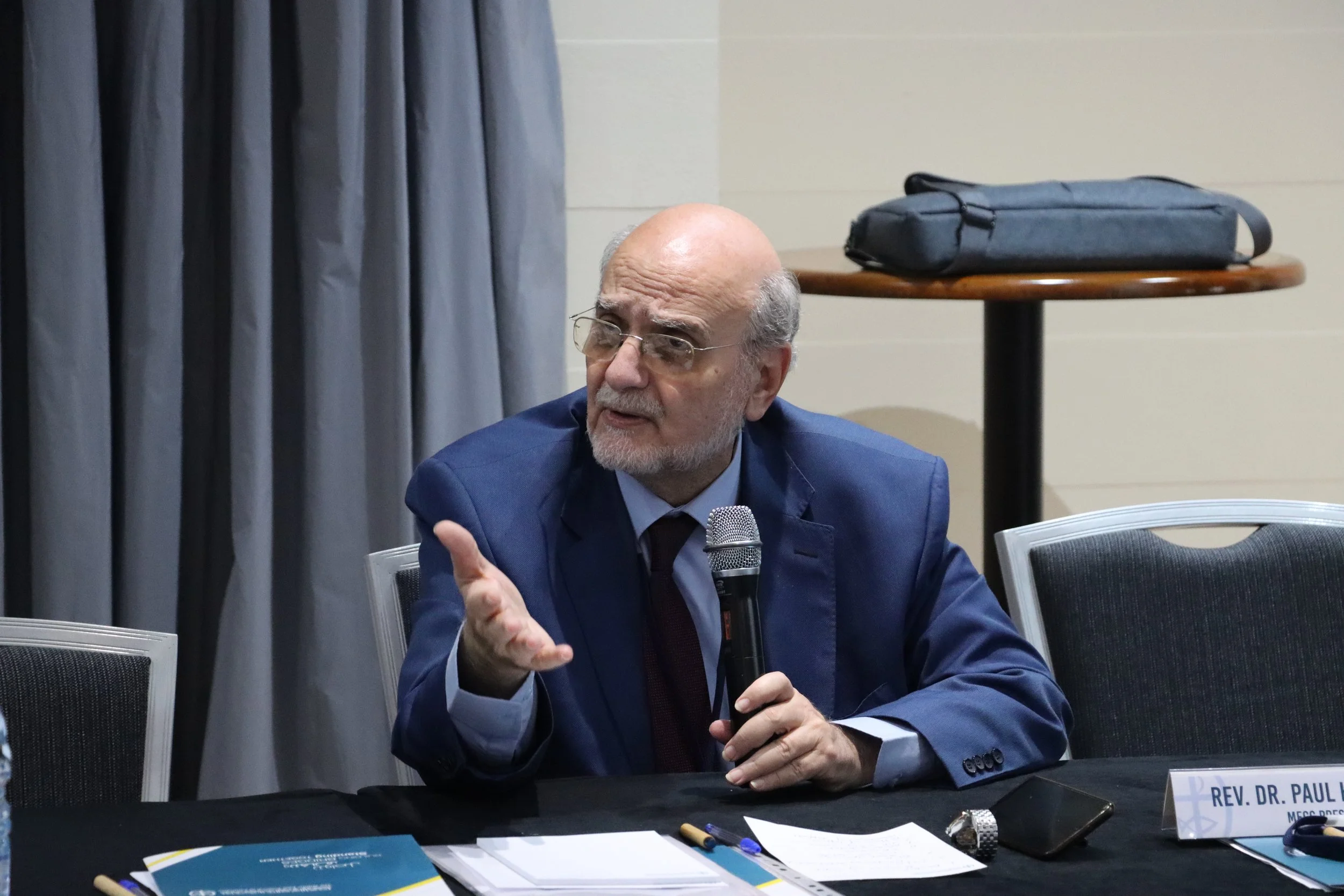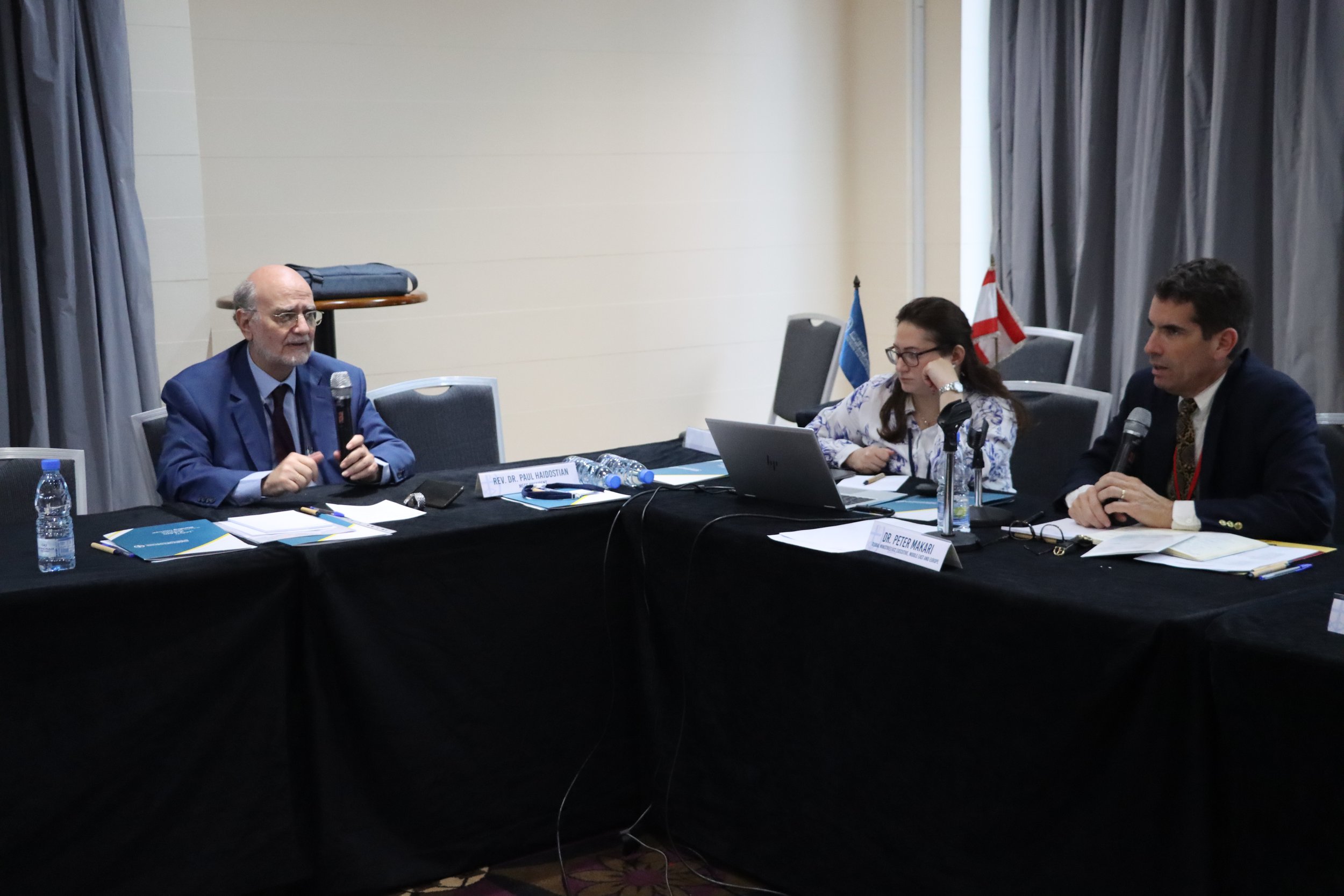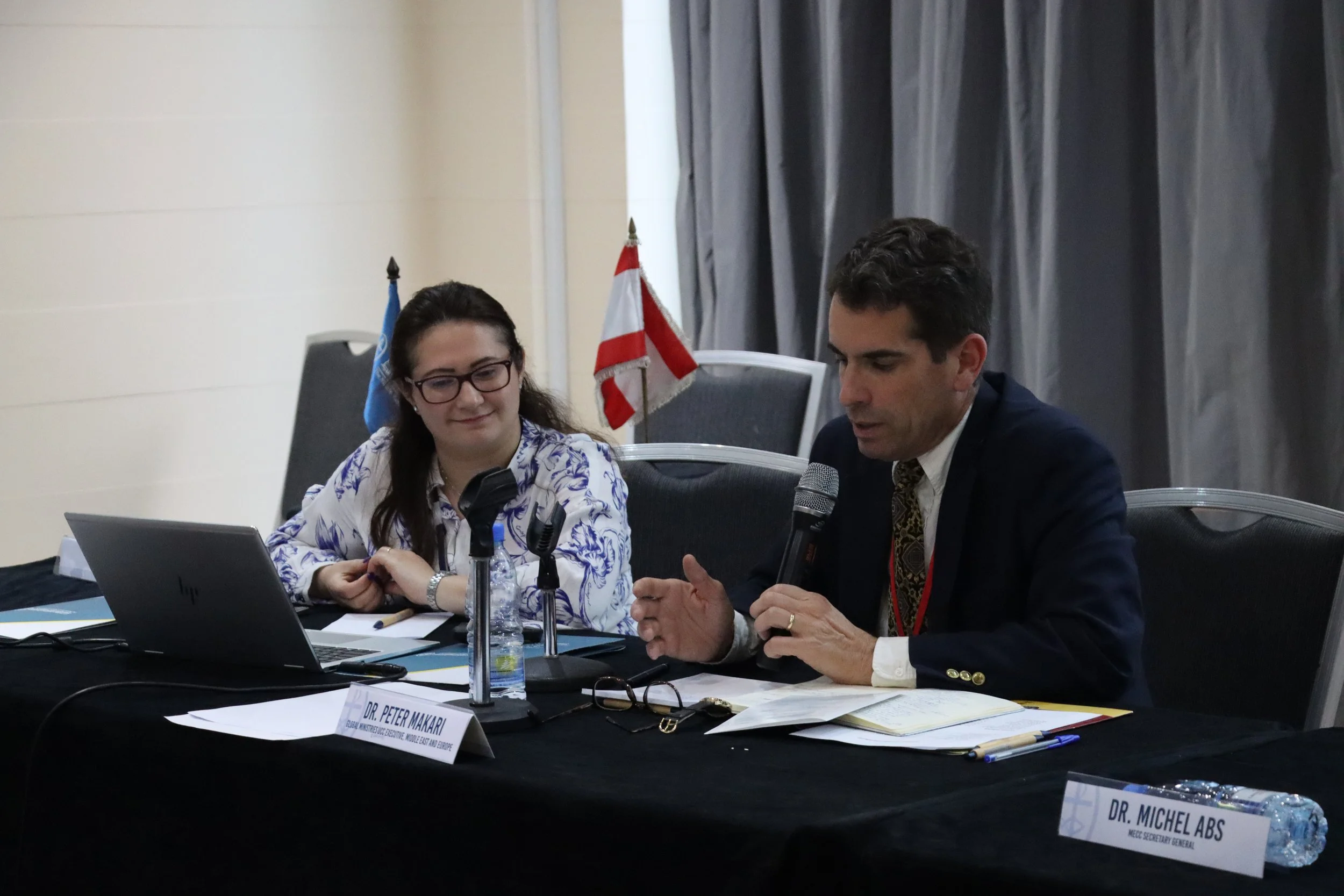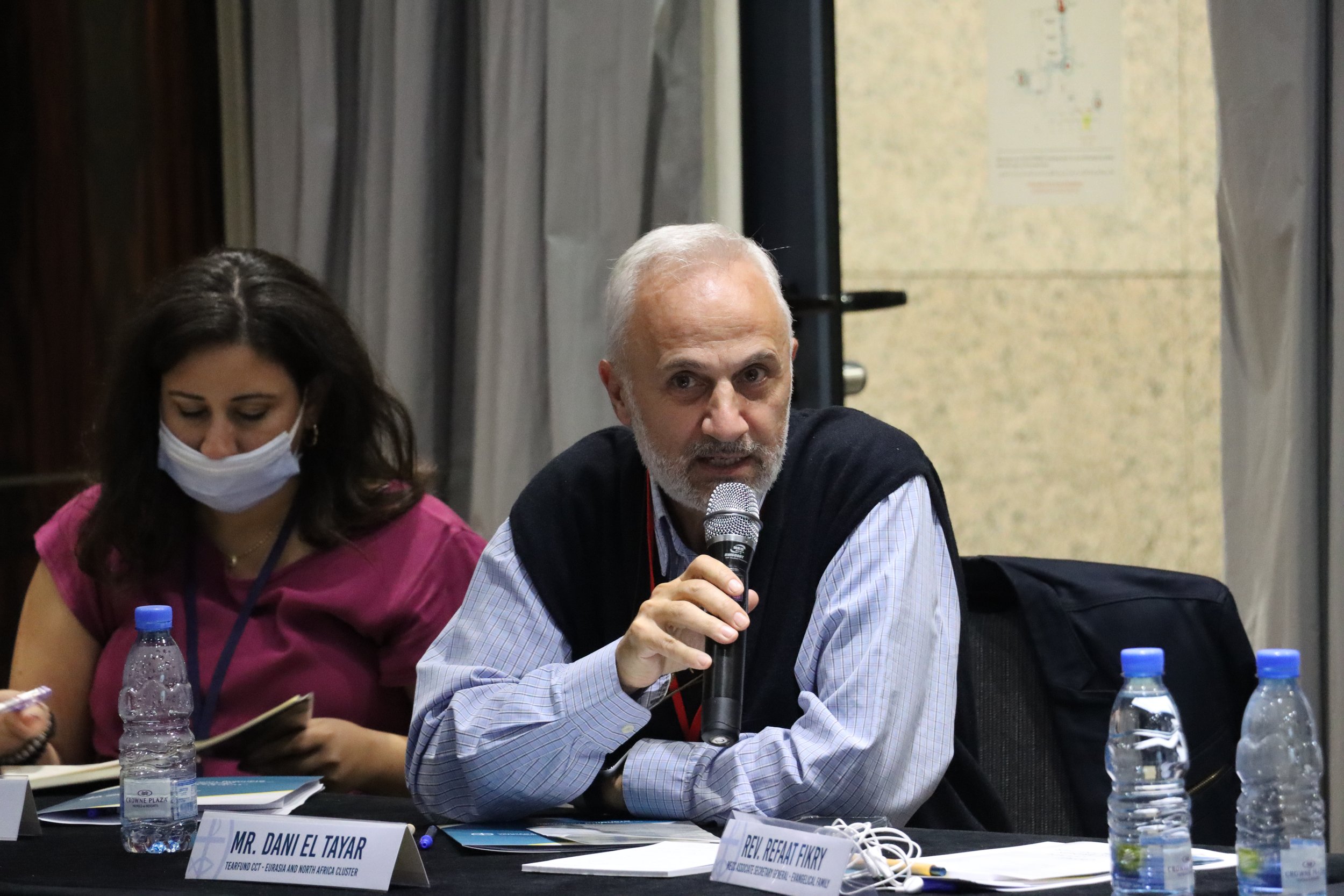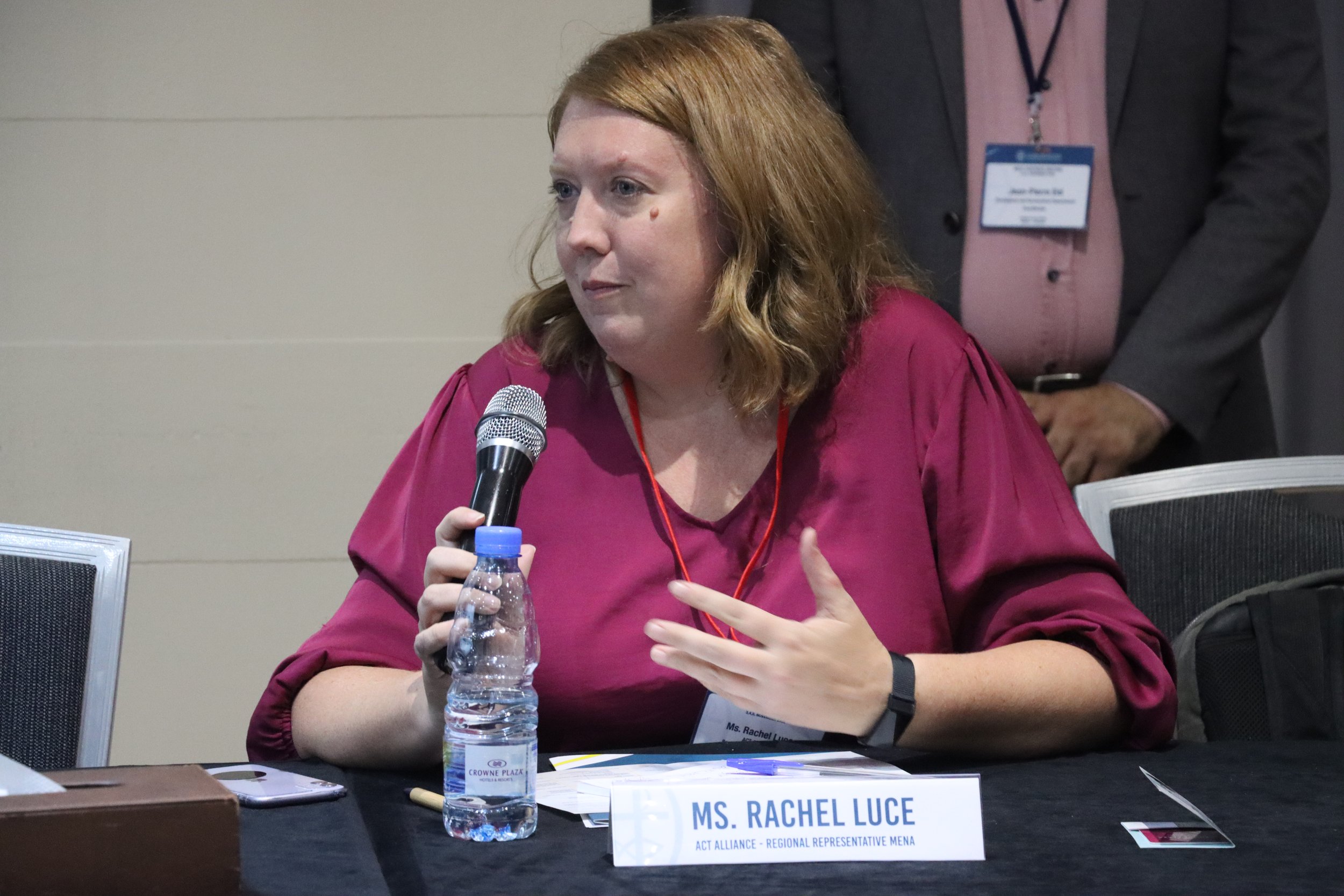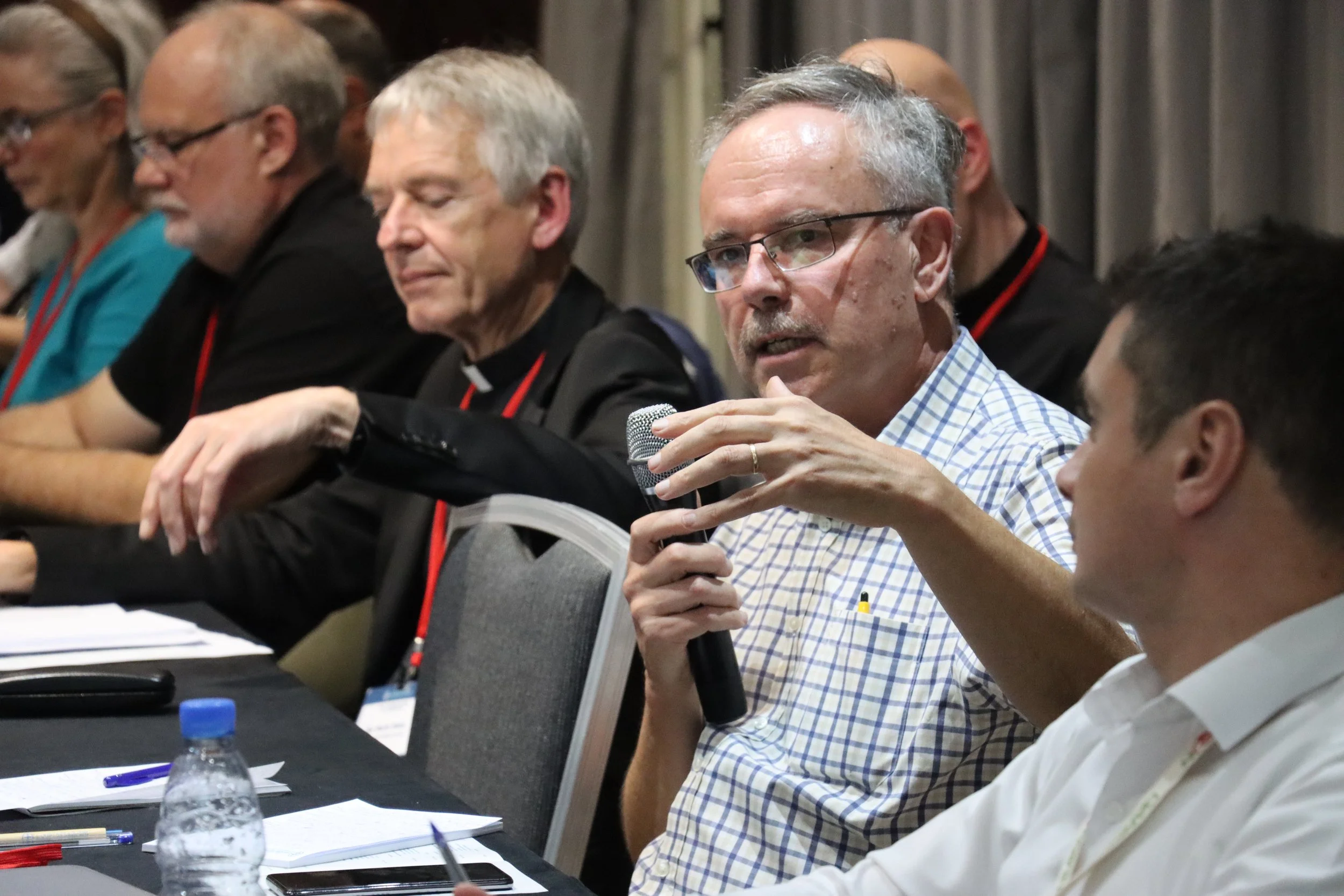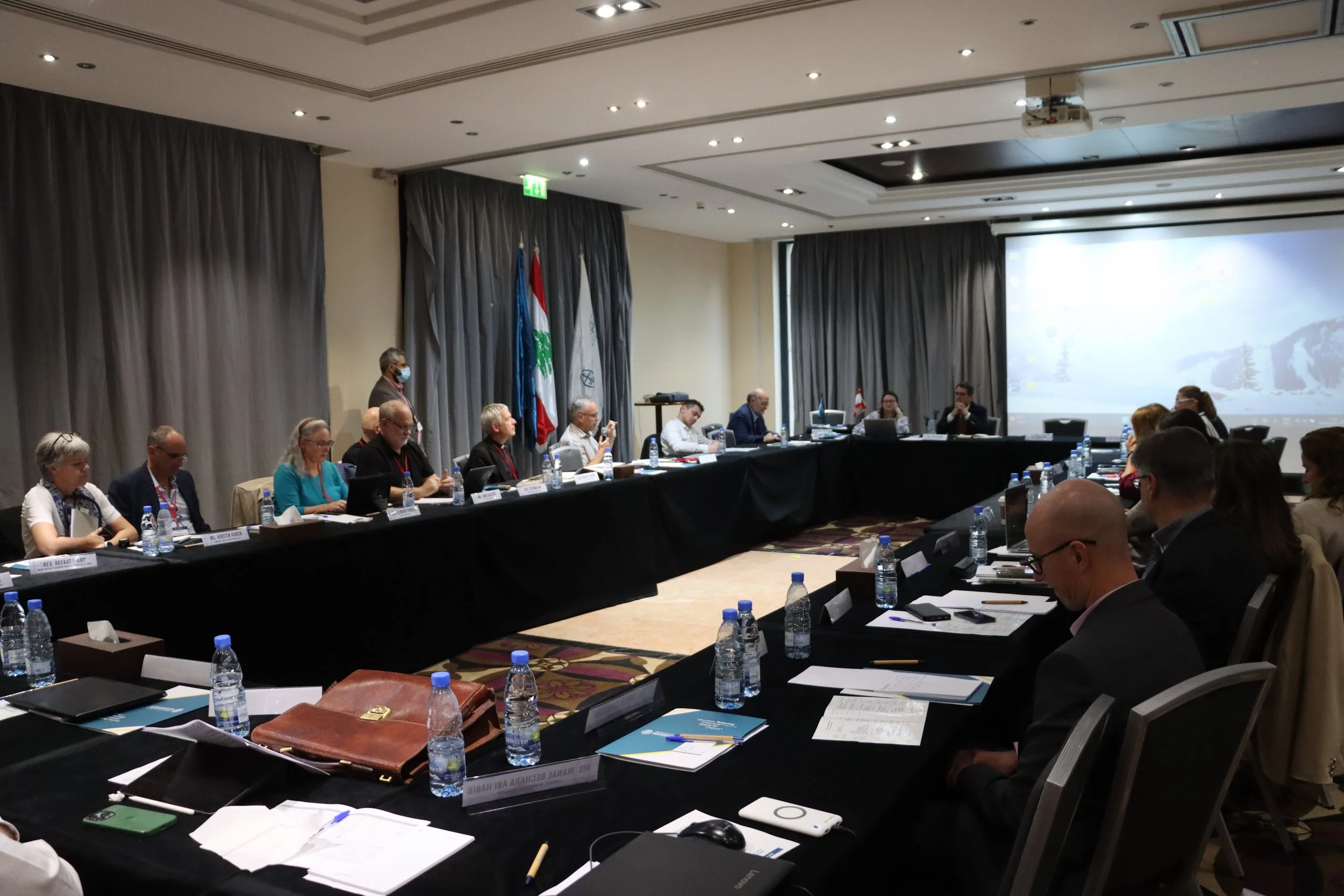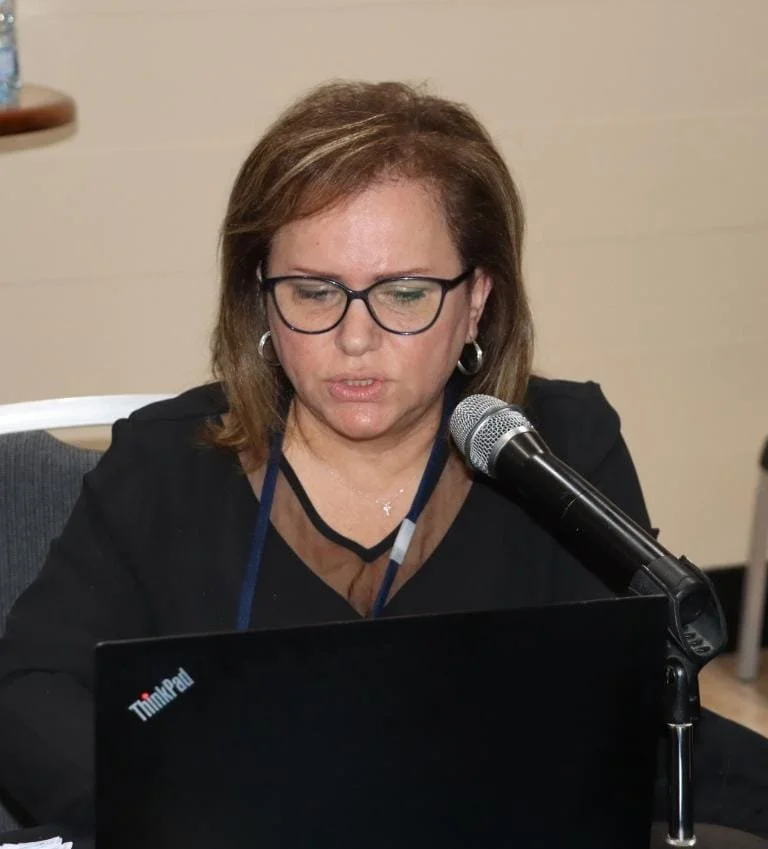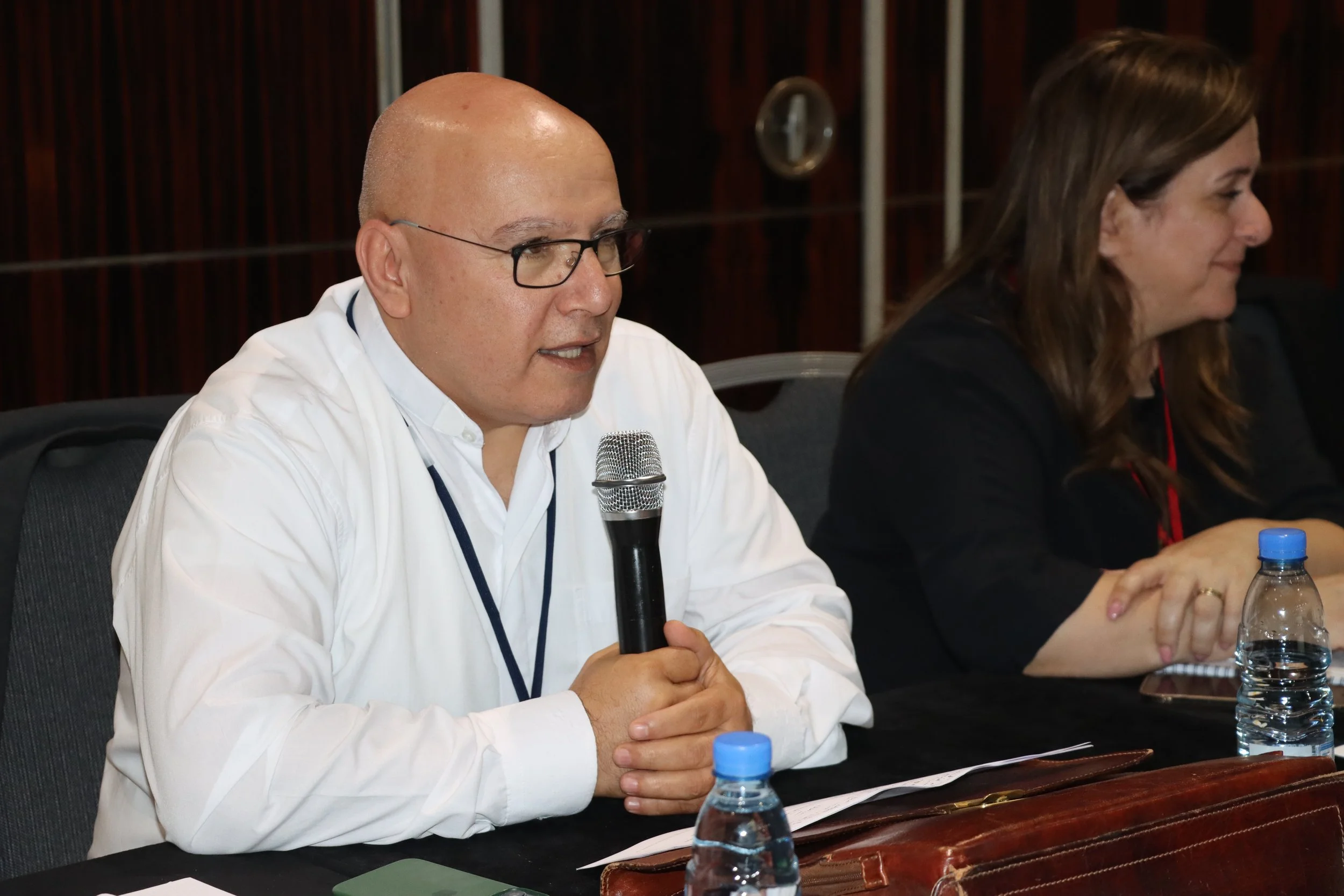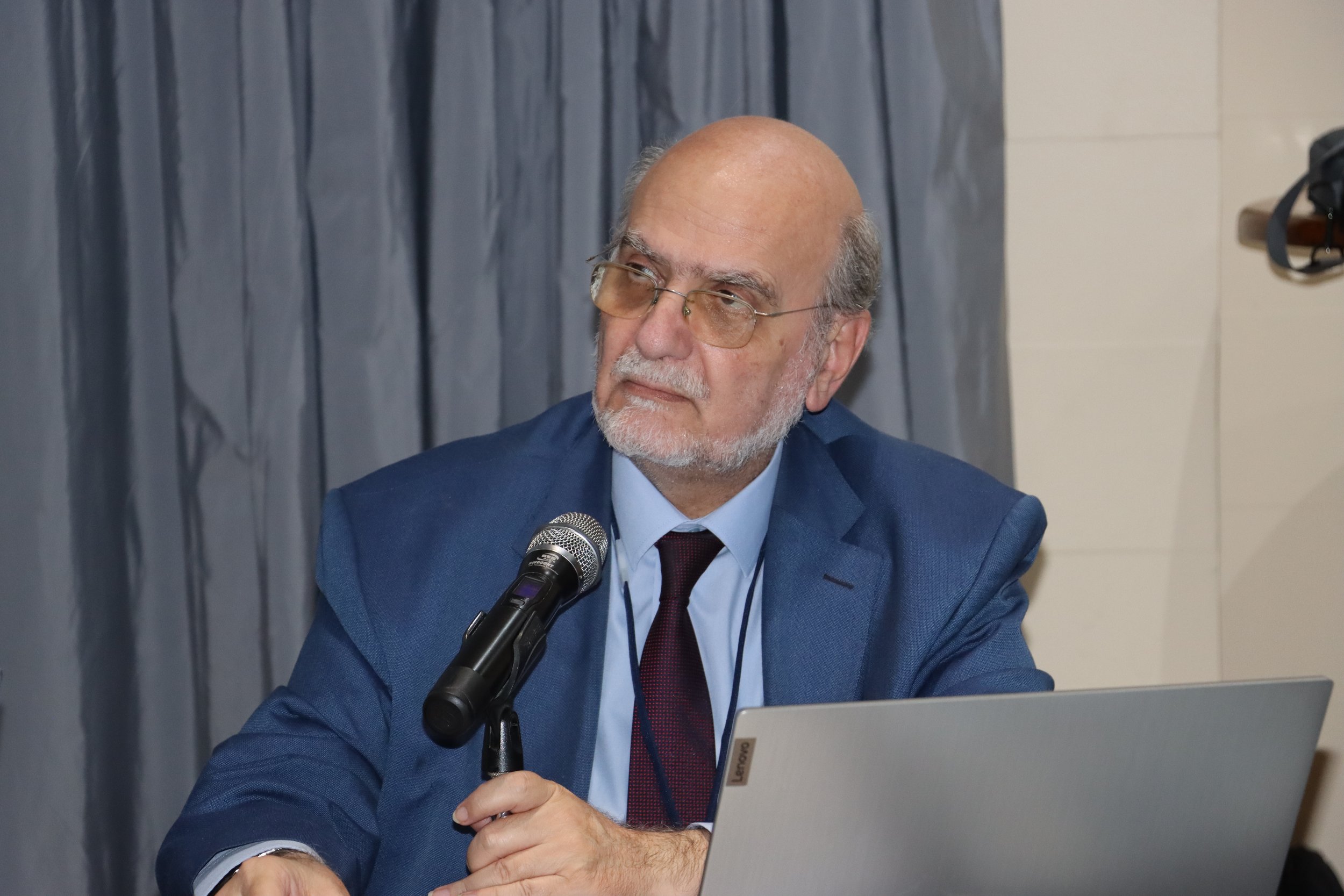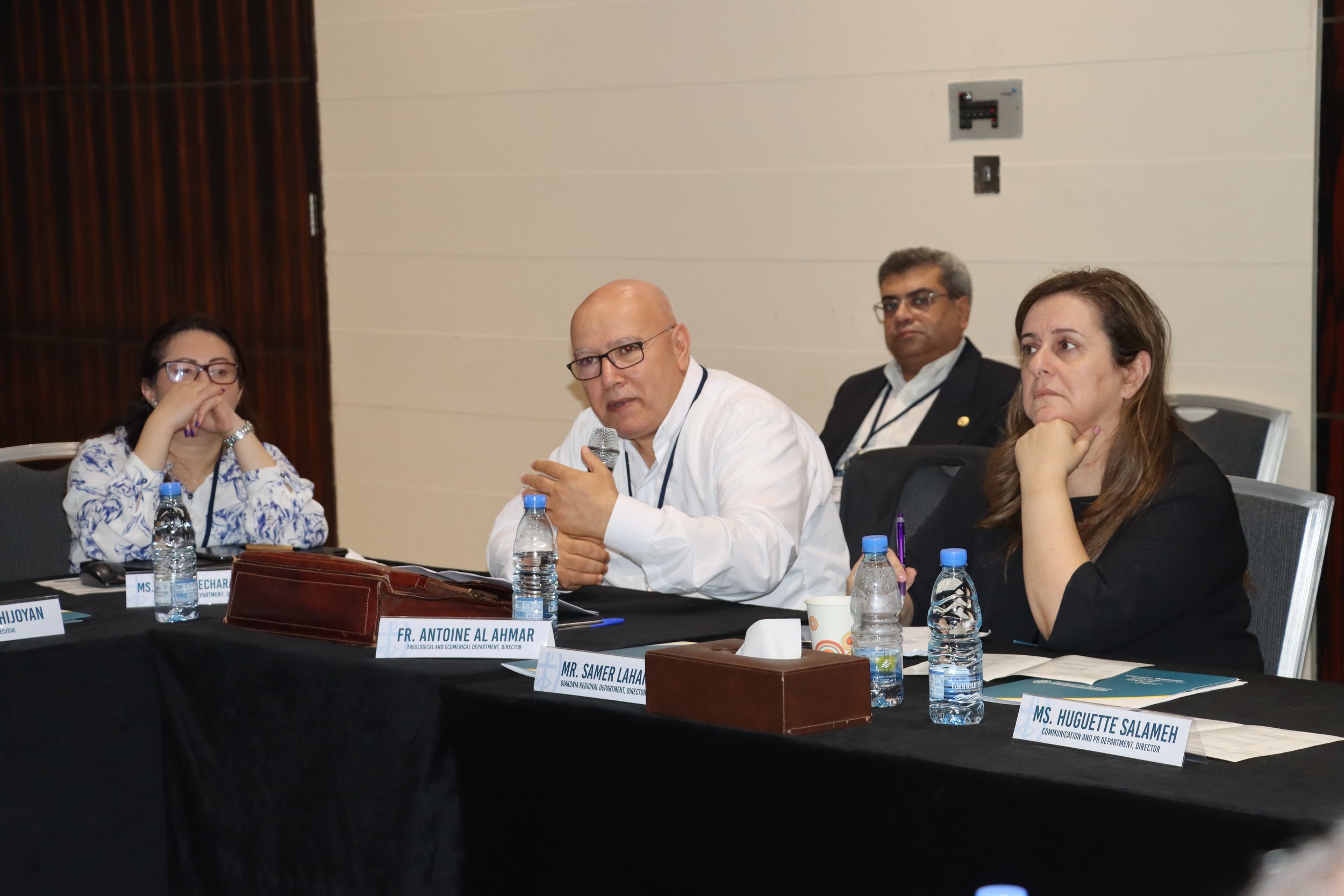Partners Accompanying MECC in the Ecumenical Journey
The First Day of the MECC Annual Partners Meeting in Beirut
Secretary General Dr. Michel Abs: Your feelings that exude through our interaction together do not go unnoticed
The General Secretariat of the Middle East Council of Churches held its annual meeting with its international and regional partner organizations and institutions, on its first day on Thursday 3 November 2022, ending on Friday 4 November, in Beirut, under the title “Partners Accompanying MECC in the Ecumenical Journey”. Participants were 18 representatives of these partner organizations and institutions from all over the world such as USA, Canada, Europe and the Middle East... As well as, attendees were the MECC Associate Secretaries General, members of the Executive Committee, Directors of departments and the Council’s team headed by the Secretary General Dr. Michel Abs.
The first session began with a morning Prayer and Bible meditation by Rev. El Marie Parker from PCUSA organization, followed by an introductory word by the moderator H.E. Bishop Joseph Mouawad, member of the MECC Executive Committee, and President of the Episcopal Committee for Ecumenical Relations for the Council of Catholic Patriarchs and Bishops in Lebanon. Then, the nomination of recording secretaries was made.
The MECC Secretary General Dr. Michel Abs delivered a speech in which he stressed the risk of the crises threatening the region, and tackled the most important challenges faced by the Eastern societies. He said “In the Middle East Council of Churches, we actually live three experiences: the first experience is the interaction of the believers of the churches with each other in a process of mutual maturation that we can describe as unique. The second experience is the interaction of this organized human group, called the Middle East Council of Churches, with its global ecumenical environment in a mutual maturation process that is different in kind… As for the third experience, it lies in the interaction between the Middle East Council of Churches and its immediate societal environment, plagued with contradictions and problems amounting at times to disasters.”
He added “The most important thing in these three experiences, is how the international ecumenical family has interacted with these societies despite their cultural differences, and has dealt with their concerns, while remaining at the same time anxious for healing their wounds and transforming such wounds into assets that constitute integral parts of their lives that need to be attended to... The Middle East Council of Churches, as a place of Christian togetherness, constitutes, through the know-how and efficiency of its working groups, as well as through its communication with the community, an early warning alarm for unhealthy social phenomena and a response center to these phenomena, and this with the energy and resources available to it.”
To the MECC partners, Dr. Abs said “We feel more than satisfied when we see how concerned you are in what we do and what we aspire to, you, our international ecumenical sisters and brothers. How reassured we feel when we see you share our concerns and pain and when you share with us your experiences on how to deal with challenges. The discussion sessions that we hold with each of you individually or collectively express to us sufficiently how much you are concerned with us. They show your eagerness towards us. Your feelings that exude through our interaction together do not go unnoticed.”
Afterwards, an introduction of participants and organizations was made, in addition to a presentation of information related to the agenda, program and logistic matters.
Following the official photo and lunch, the second session started and was moderated by Rev. Dr. Habib Badr, MECC Honorary President, and President of the National Evangelical Union in Lebanon, and was focused on regional challenges and response. During the session, Dr. Fadi Nicholas Nassar gave an overview about the difficult circumstances of the Middle East amidst the social, economic, health and security crises, in addition to the repercussions of the global crises and conflicts on the region, tackling the urgent needs of the Eastern people.
Then, the MECC Secretary General Dr. Michel Abs presented his report, which included all the activities, programs and projects that he planned and implemented during the past years of his mandate, followed by a discussion session and exchange of opinions and experiences in order to achieve the desired Ecumenical and humanitarian goals.
The third session was moderated by Dr. Peter Makari, the Executive Director of the international organizations, Global Ministries of the Christian Church and the United Church of Christ, in the Middle East and Europe, in the Middle East and Europe. Discussions were centered around developing the MECC's work mechanisms towards a more sustainable future. Reports on MECC Finances and Annual Audit were presented. As well as, the Directors of departments presented their reports including all their achievements and future projects to be implemented in the future on the Theological, Ecumenical, humanitarian, relief and media fields.
The first day also included a video presentation about the MECC 12th General Assembly and the Service and Relief - Diakonia Department activities in the Middle East region. The day ended with a dinner which gathered the participants in an international and regional Ecumenical spirit.

